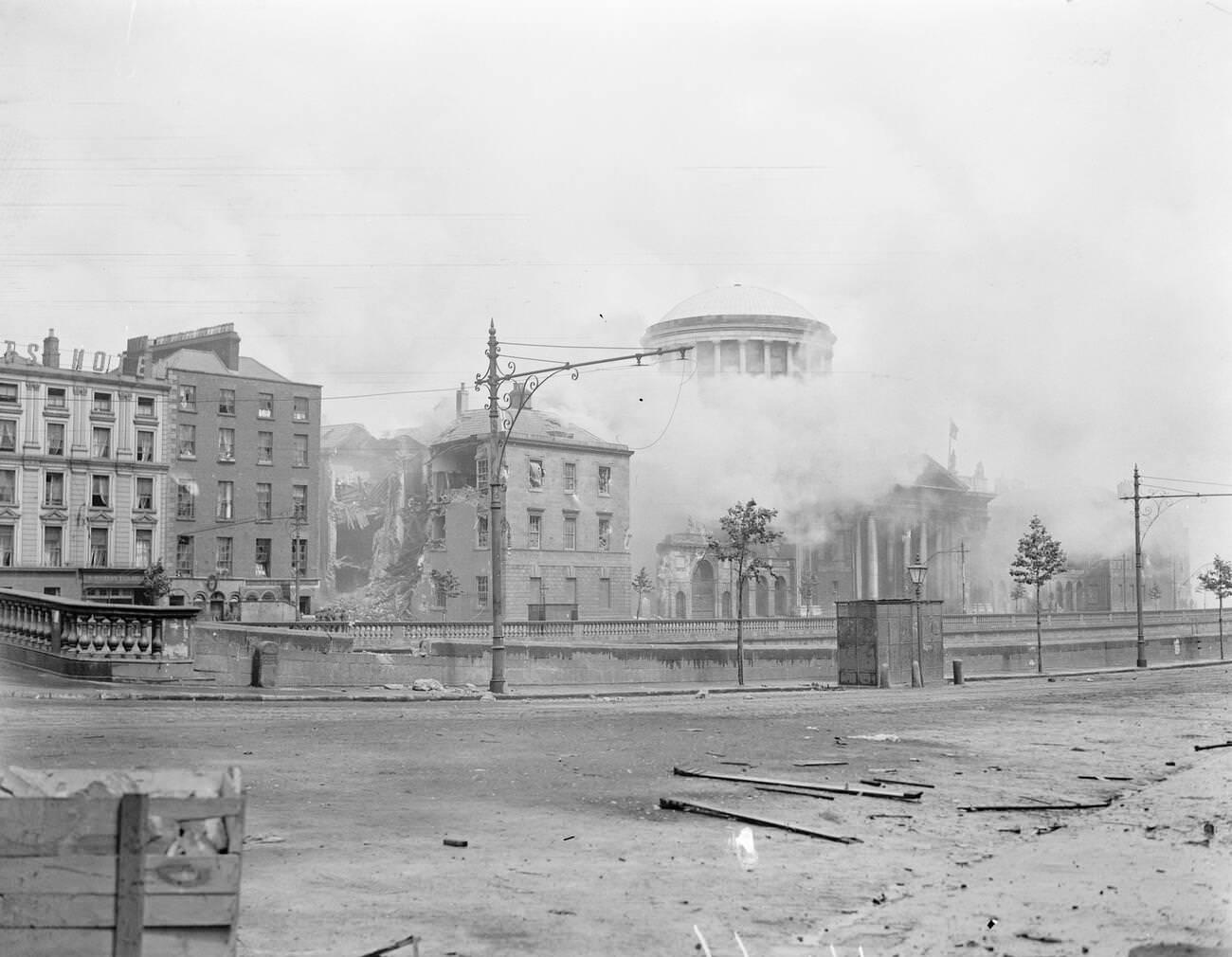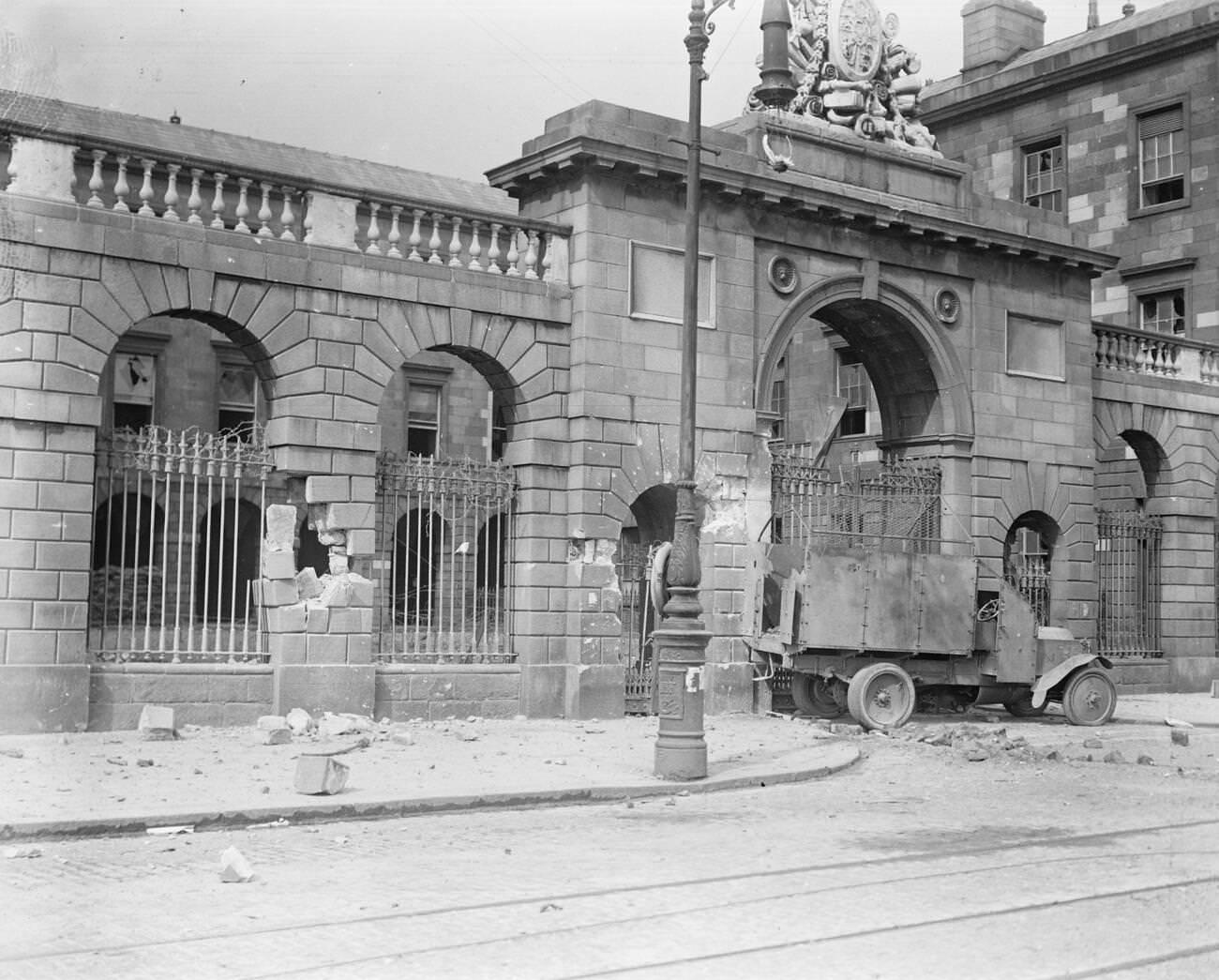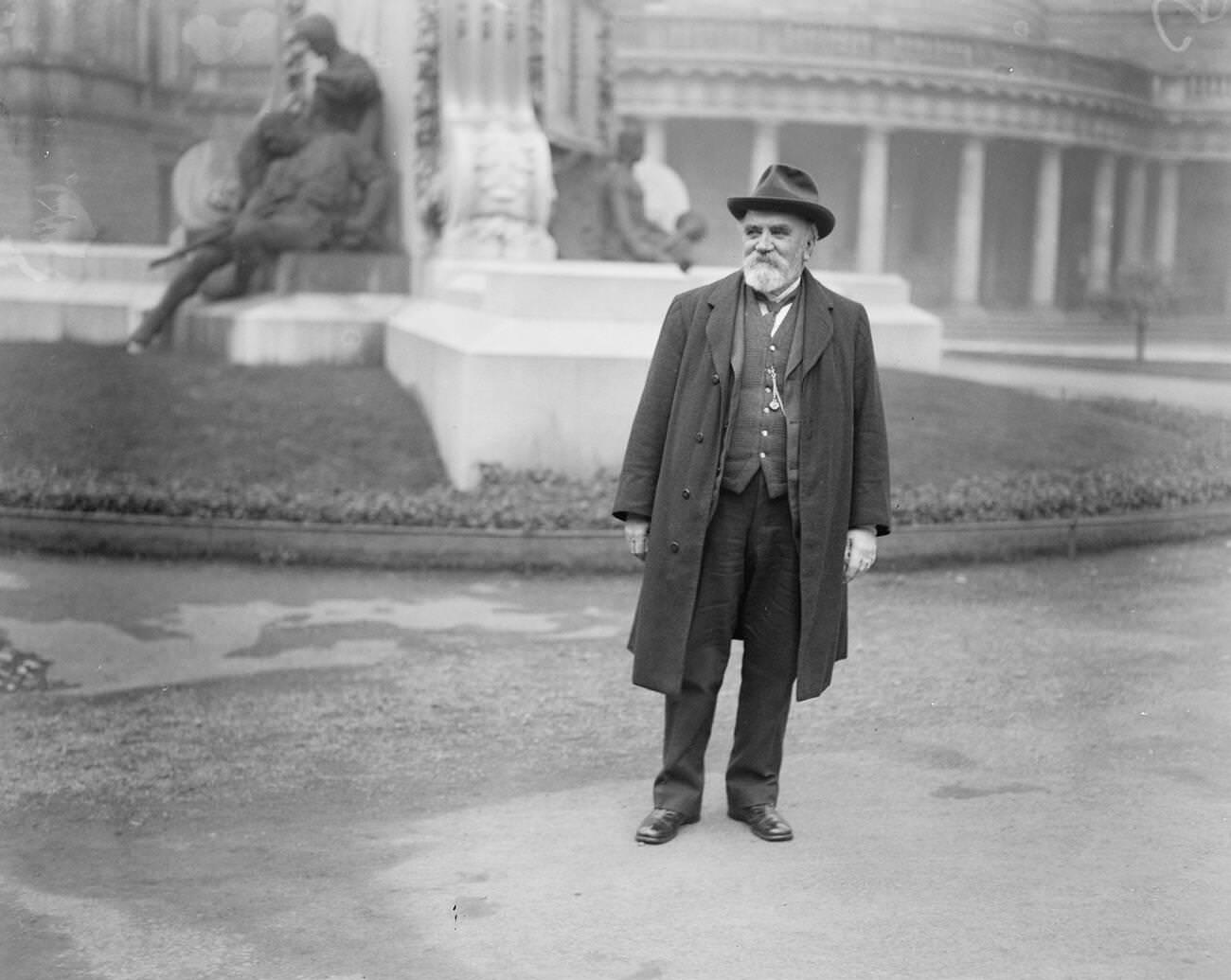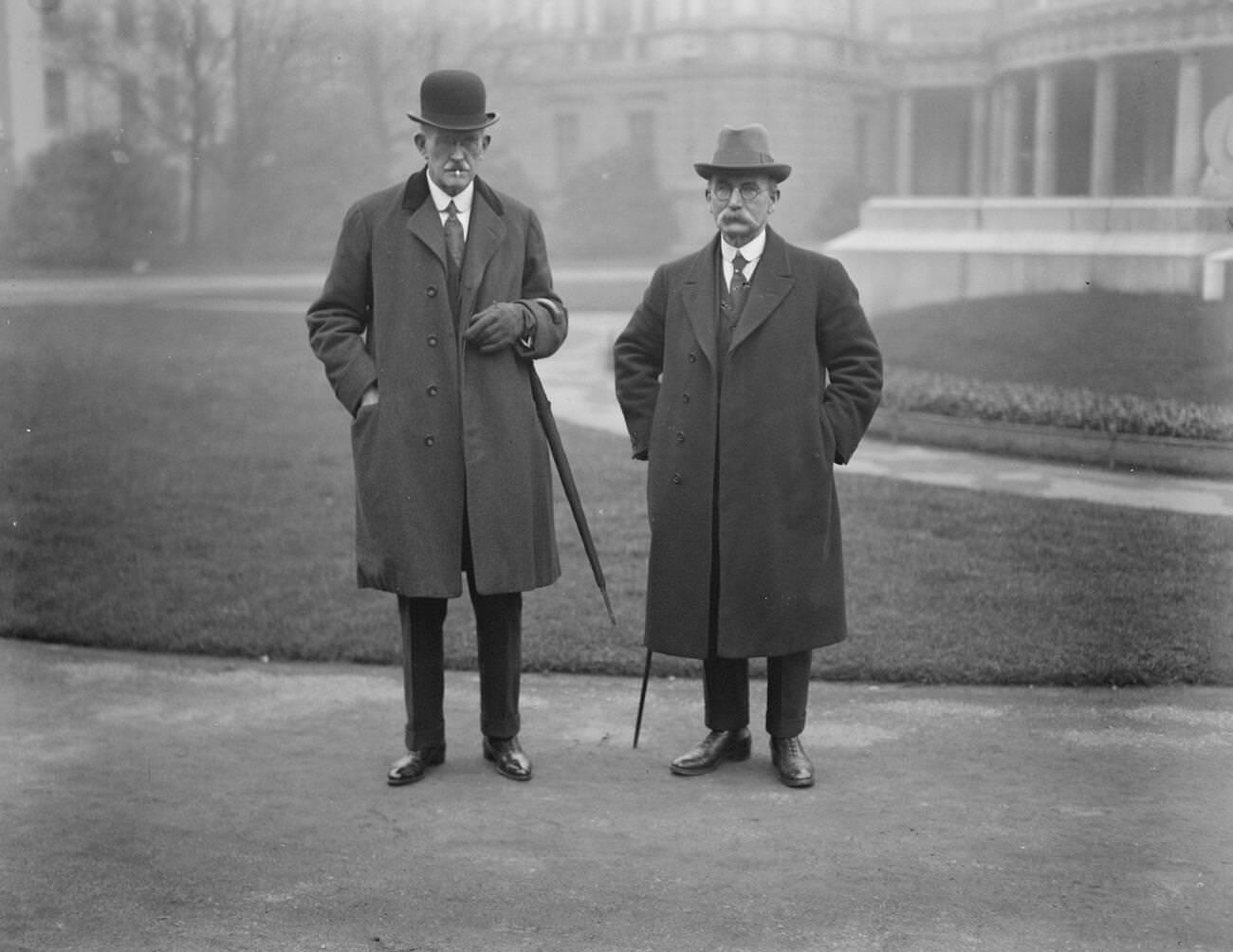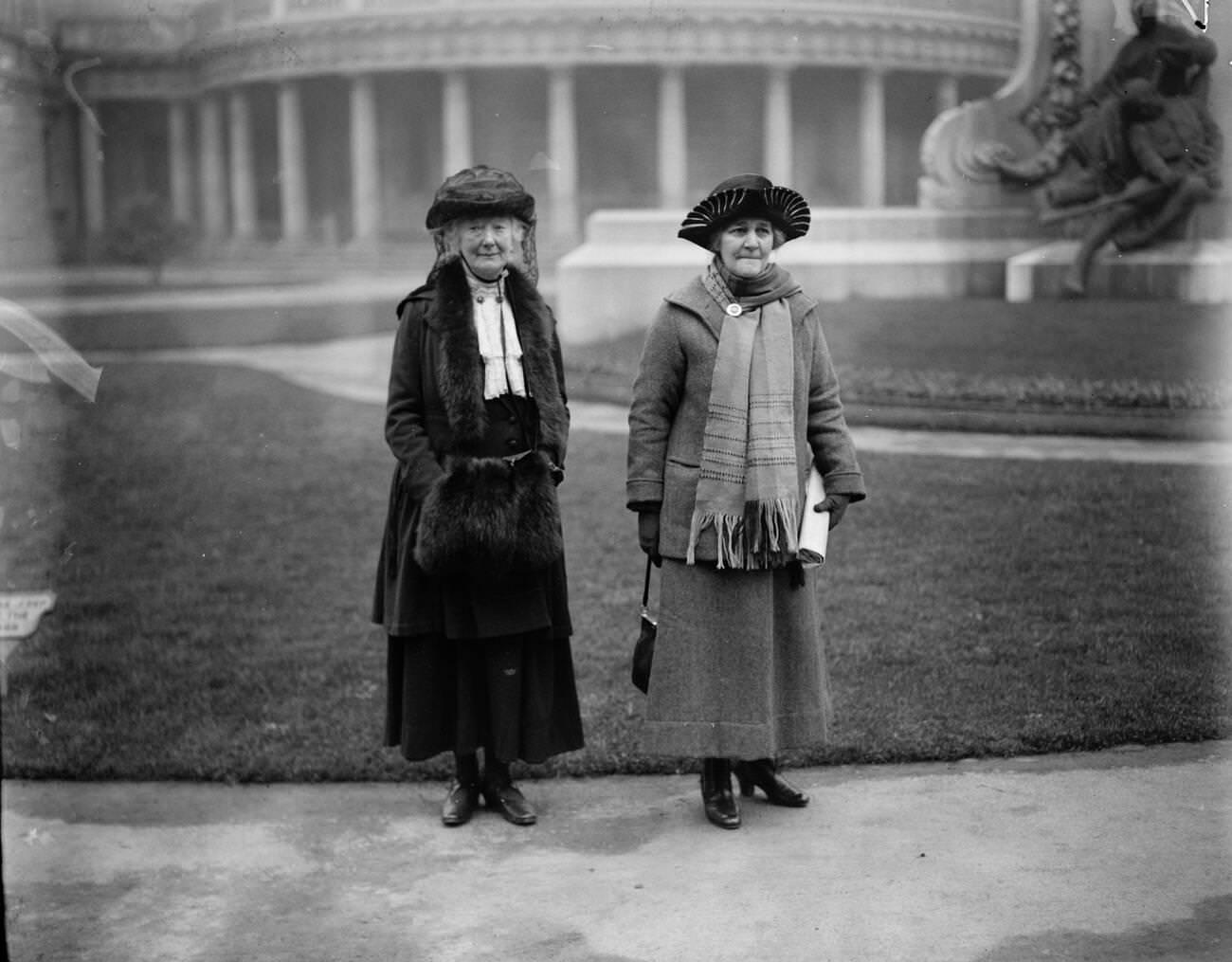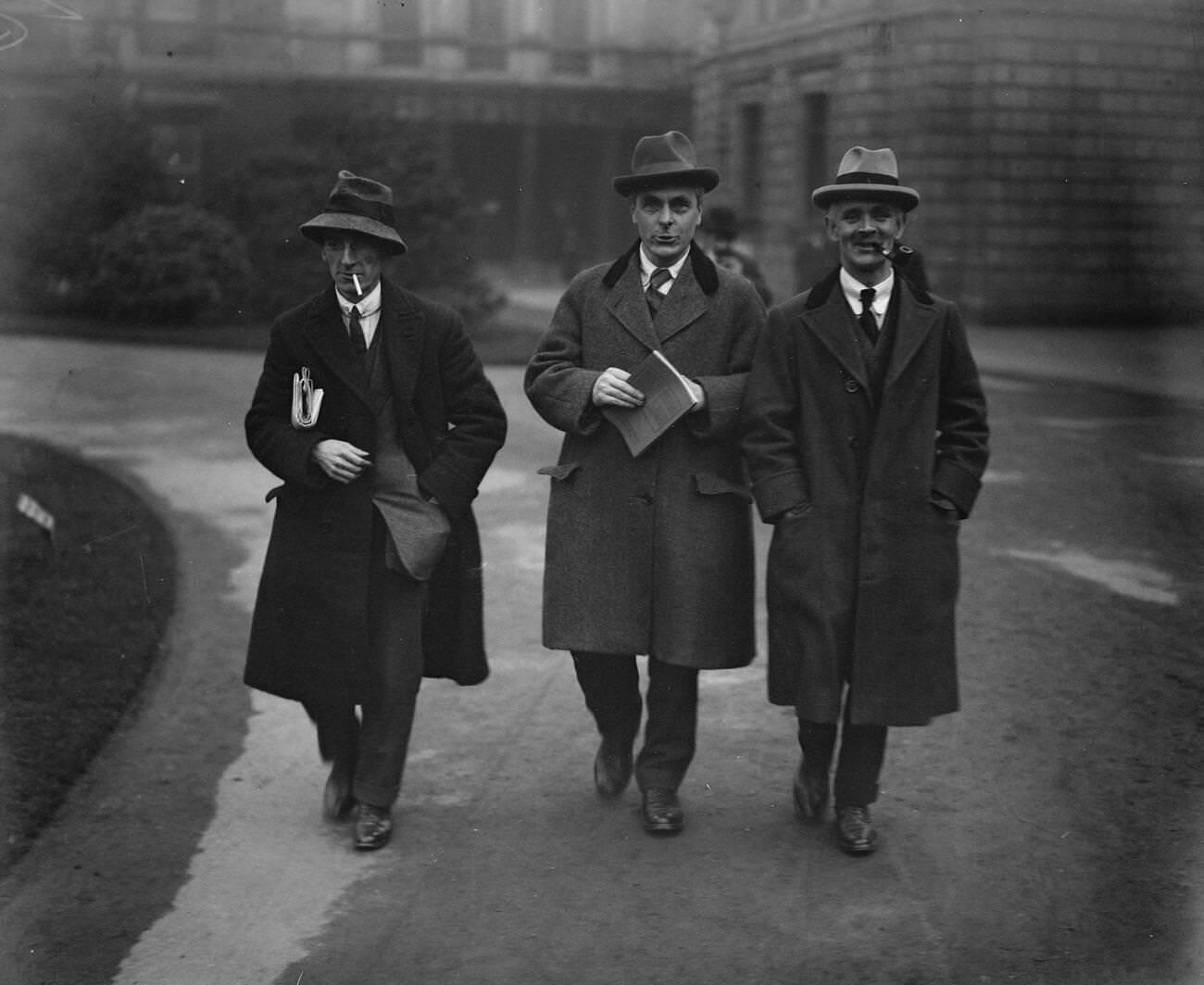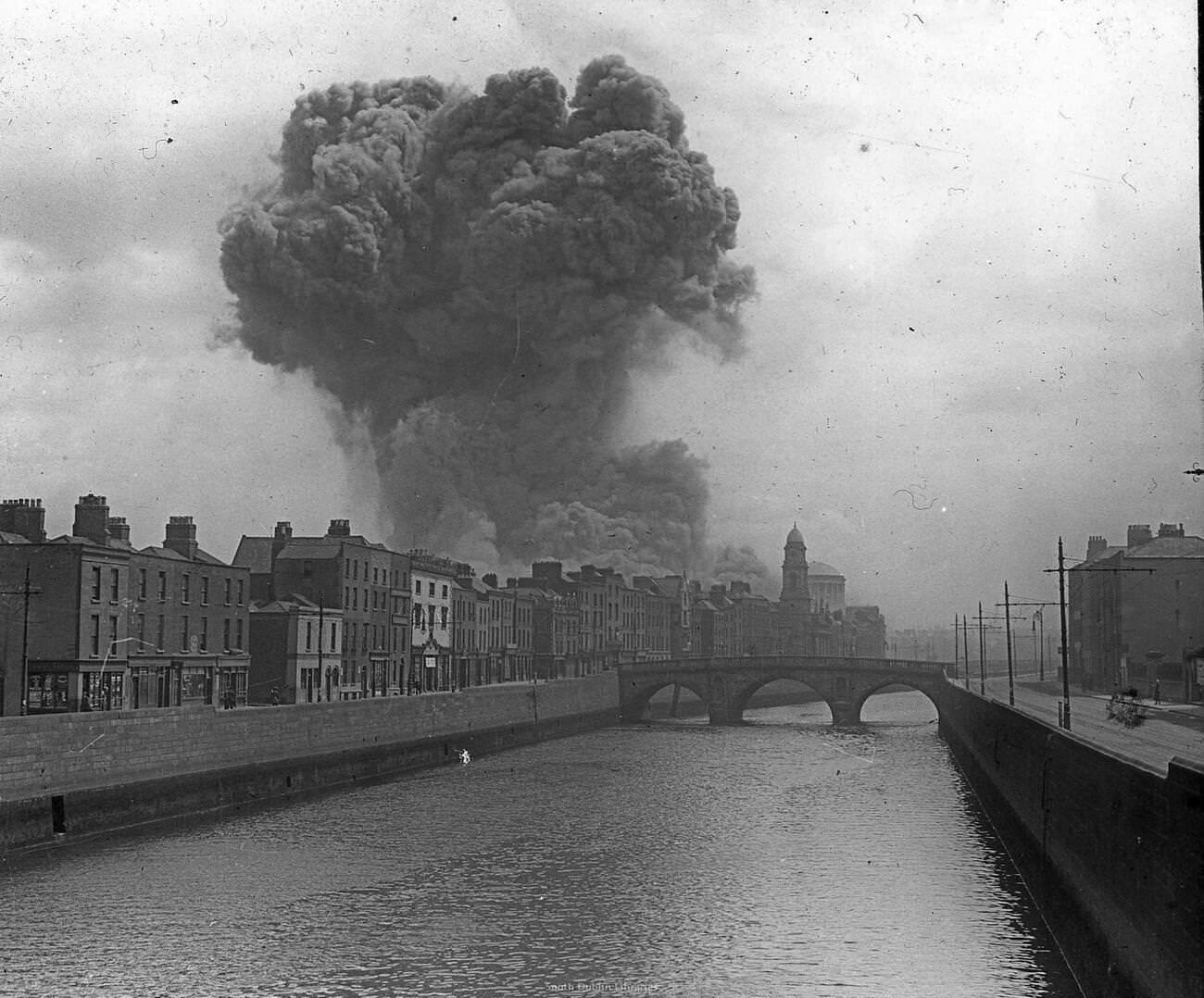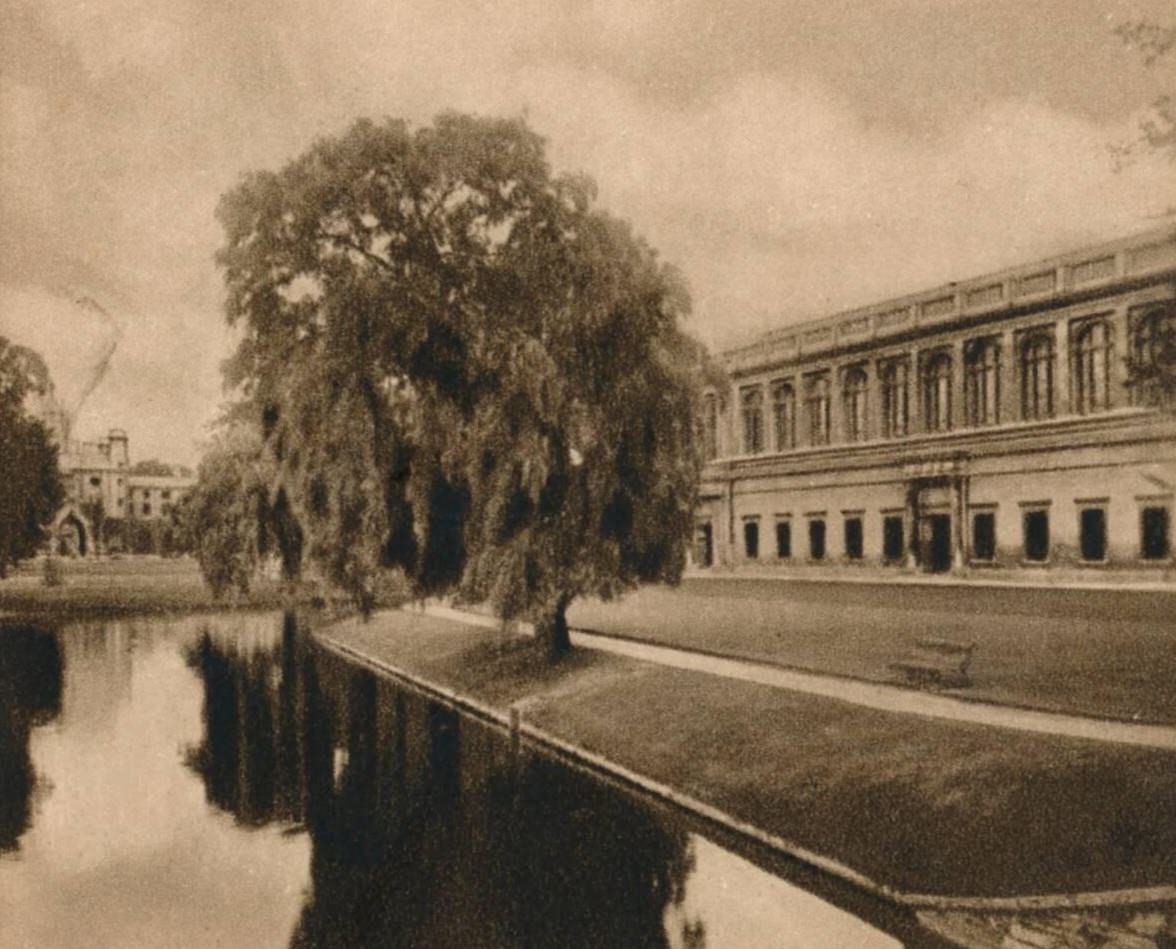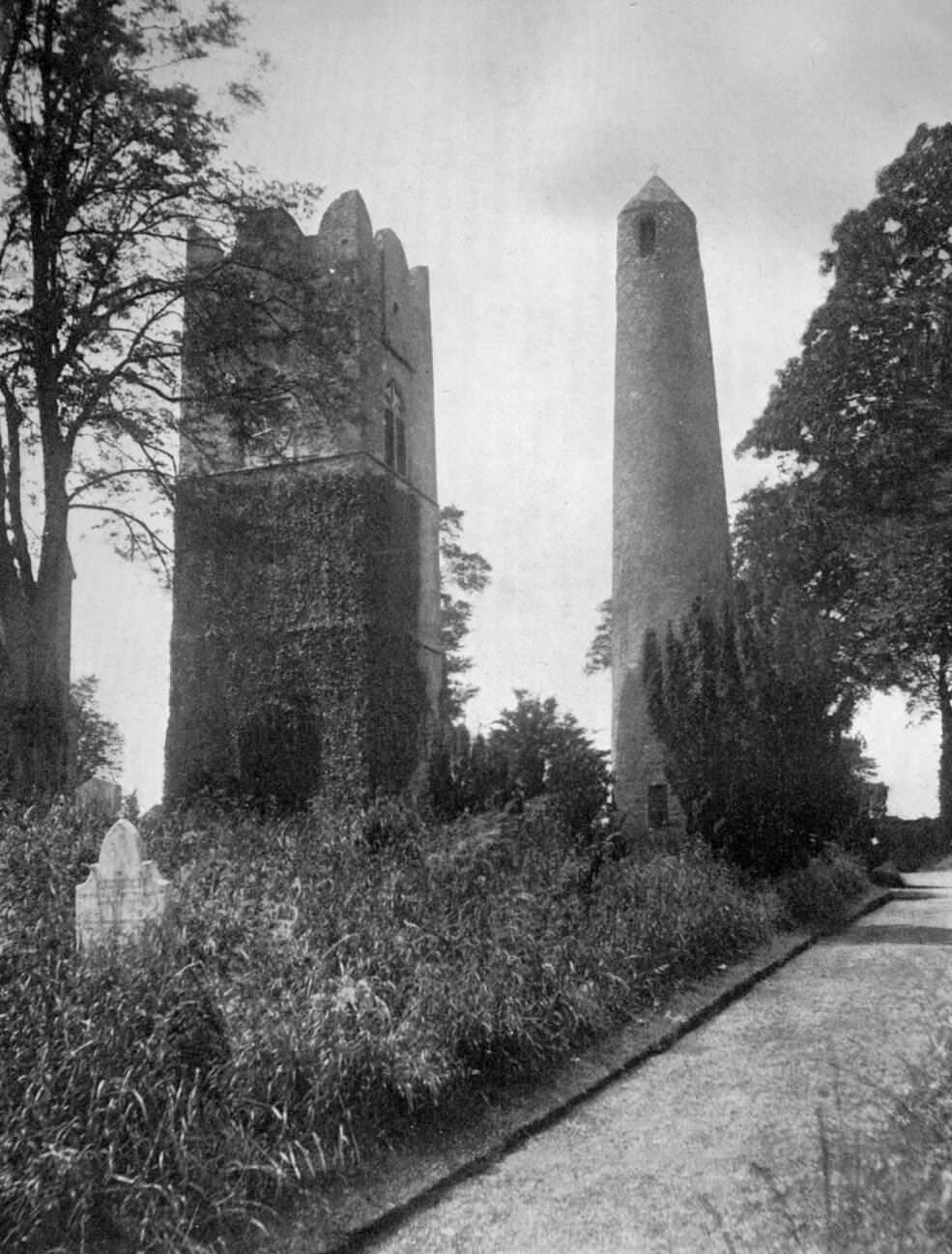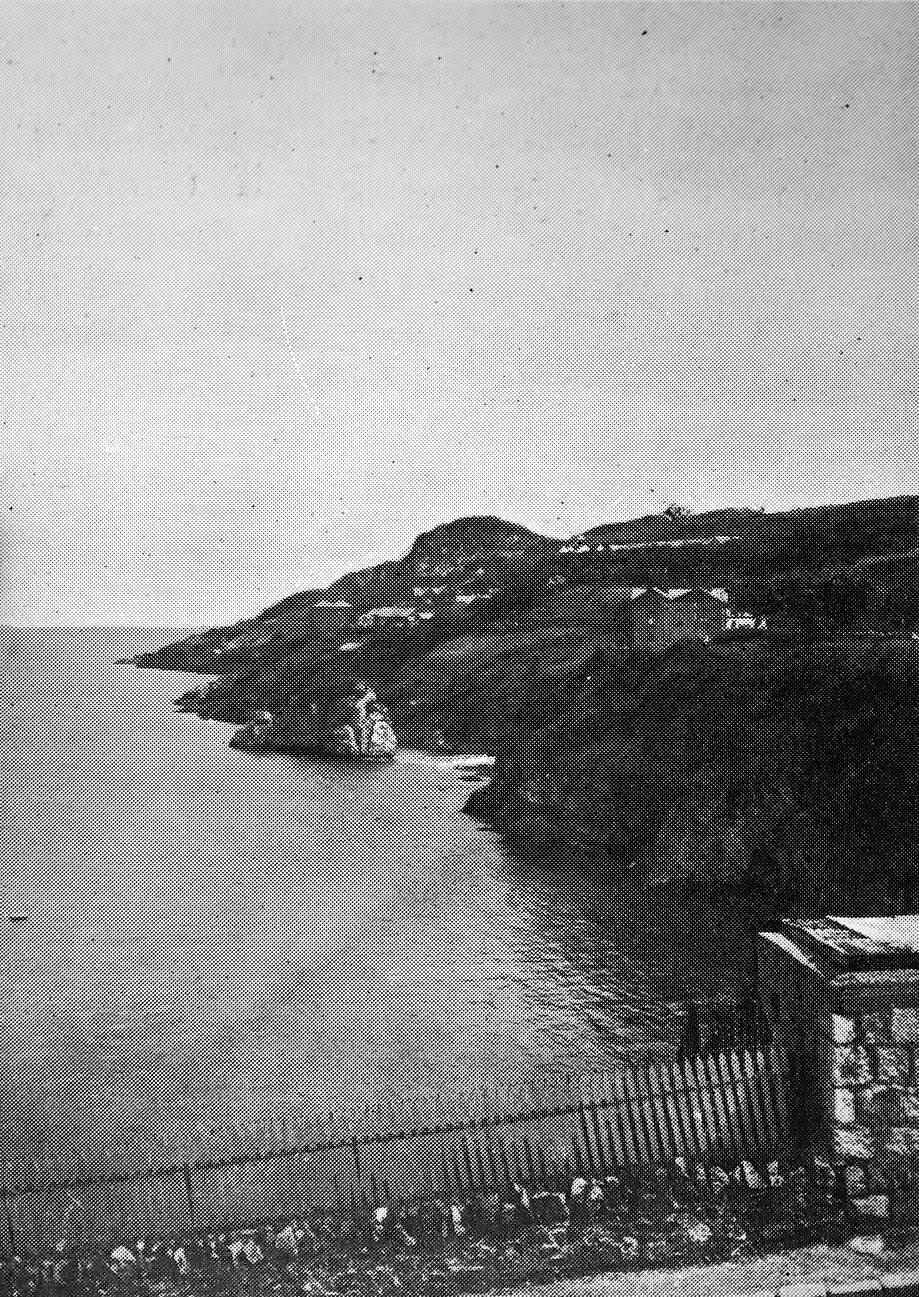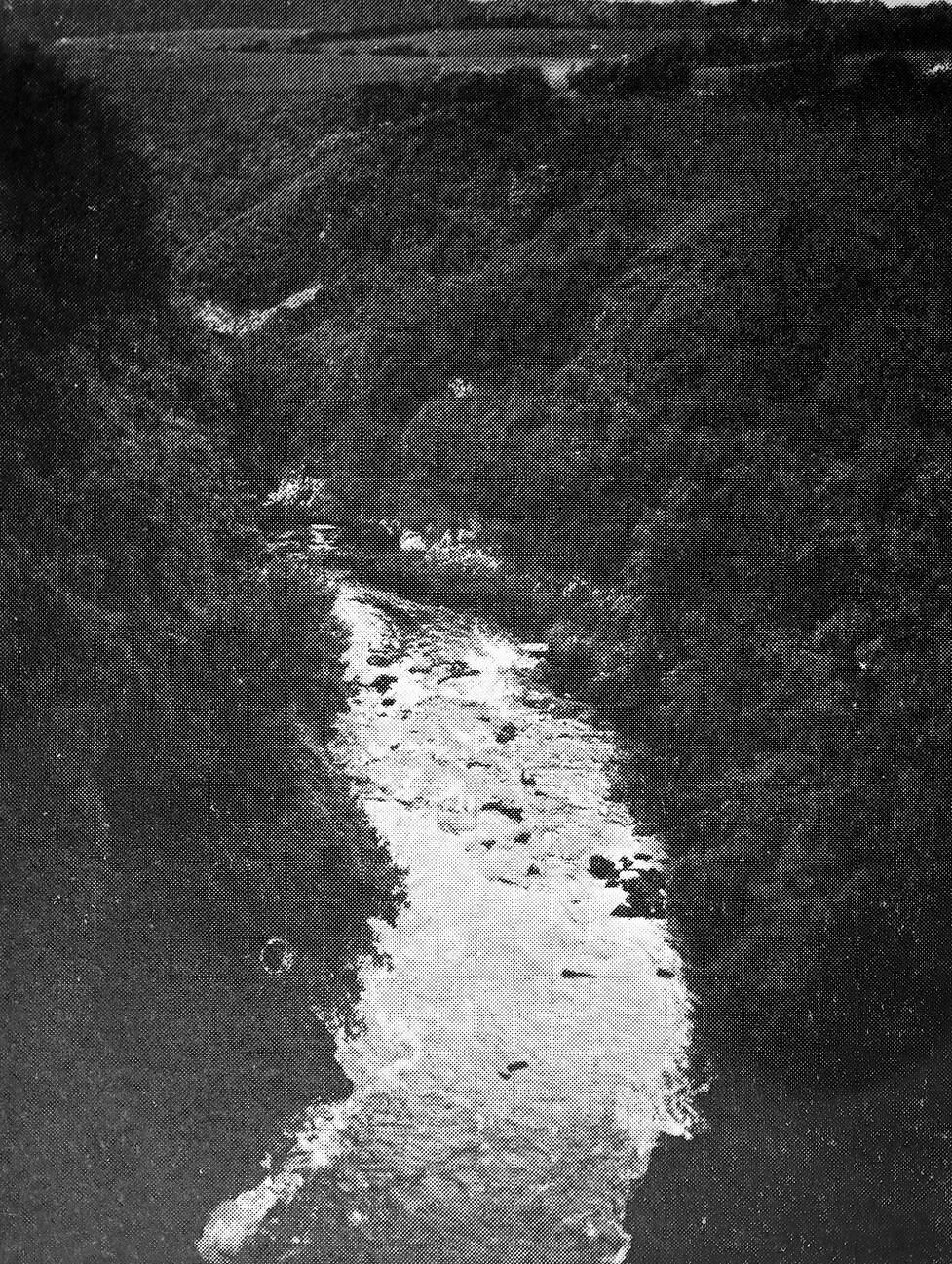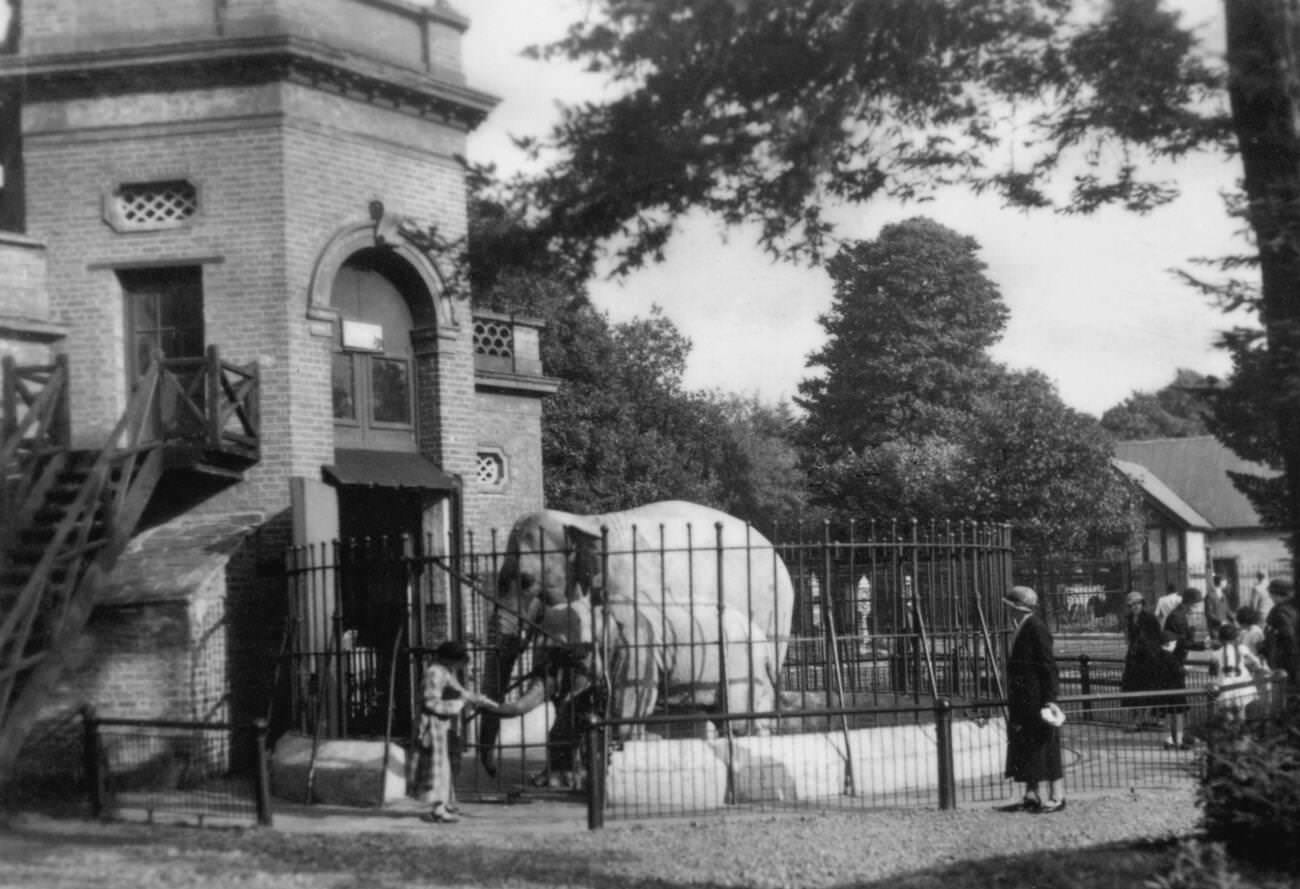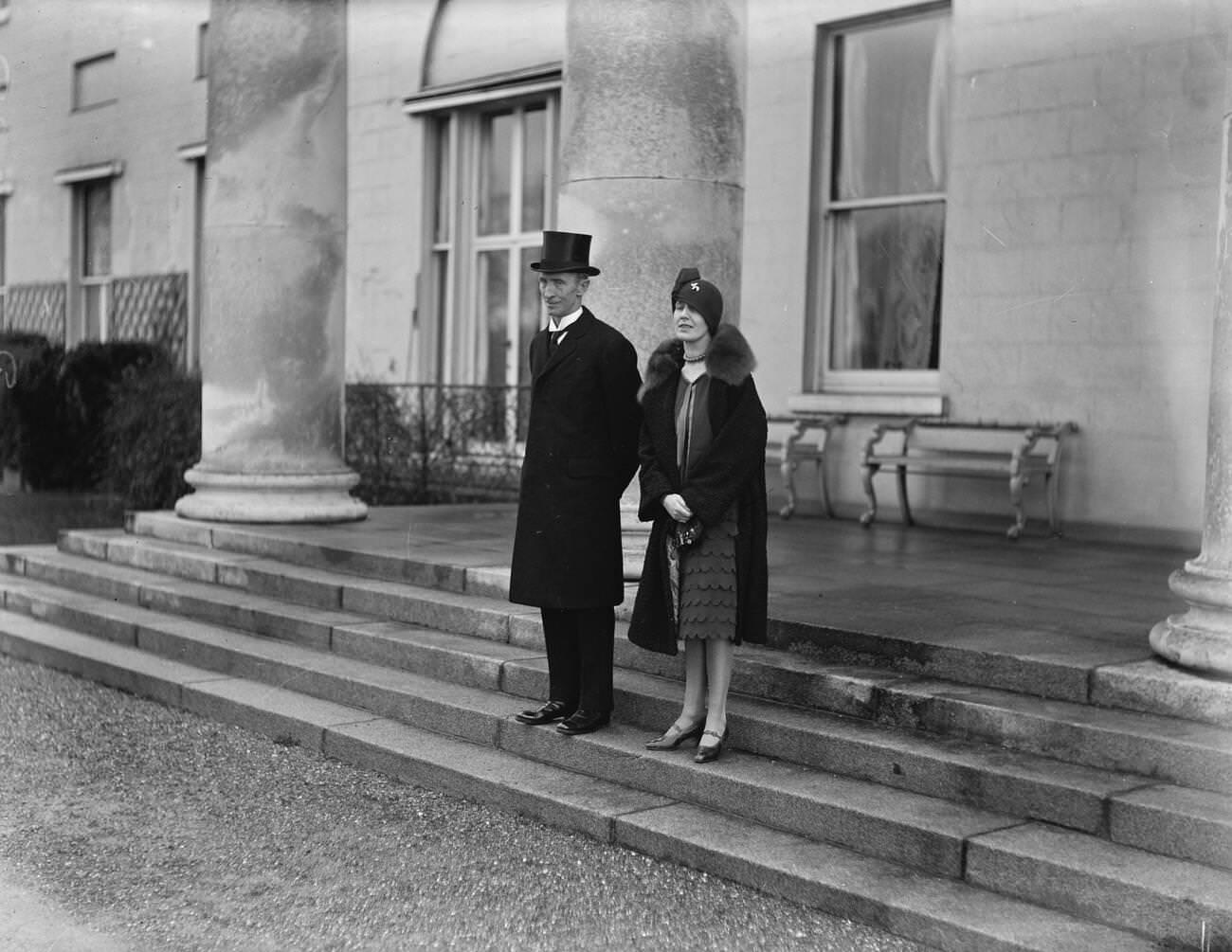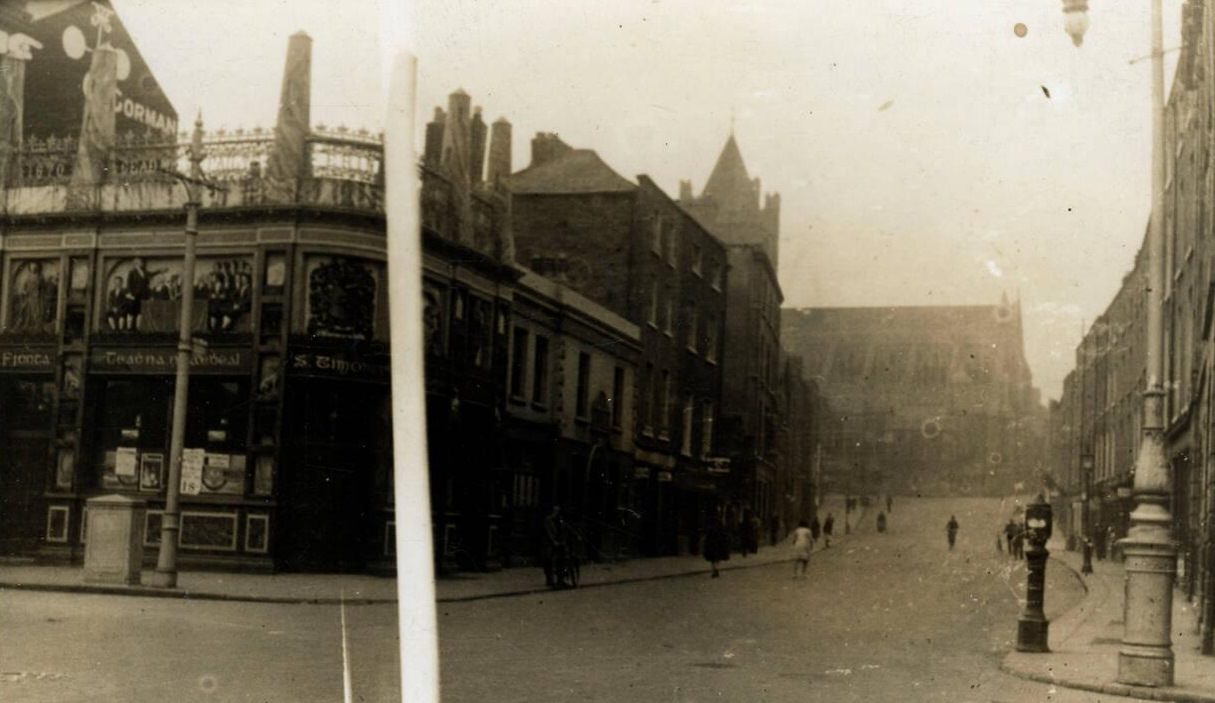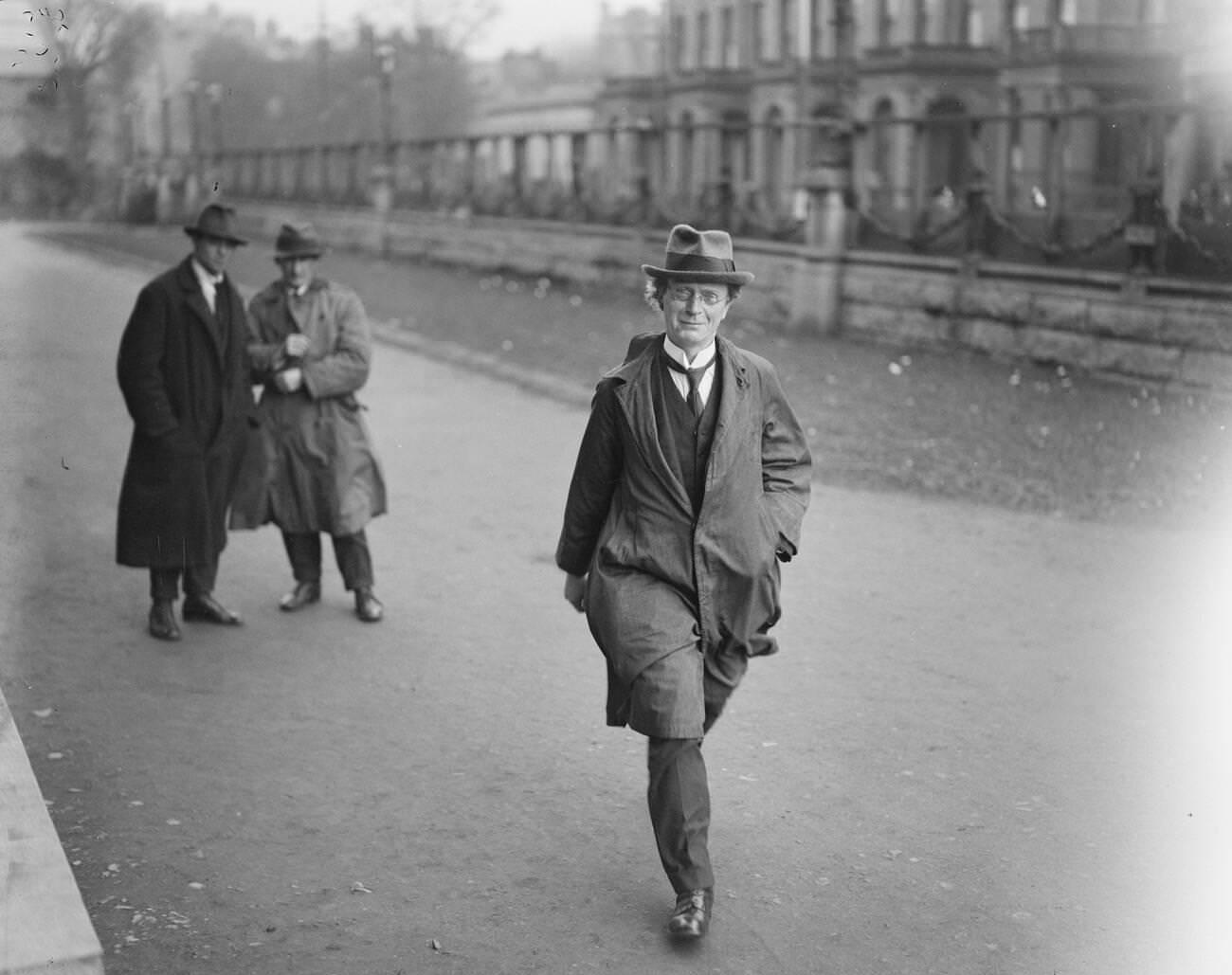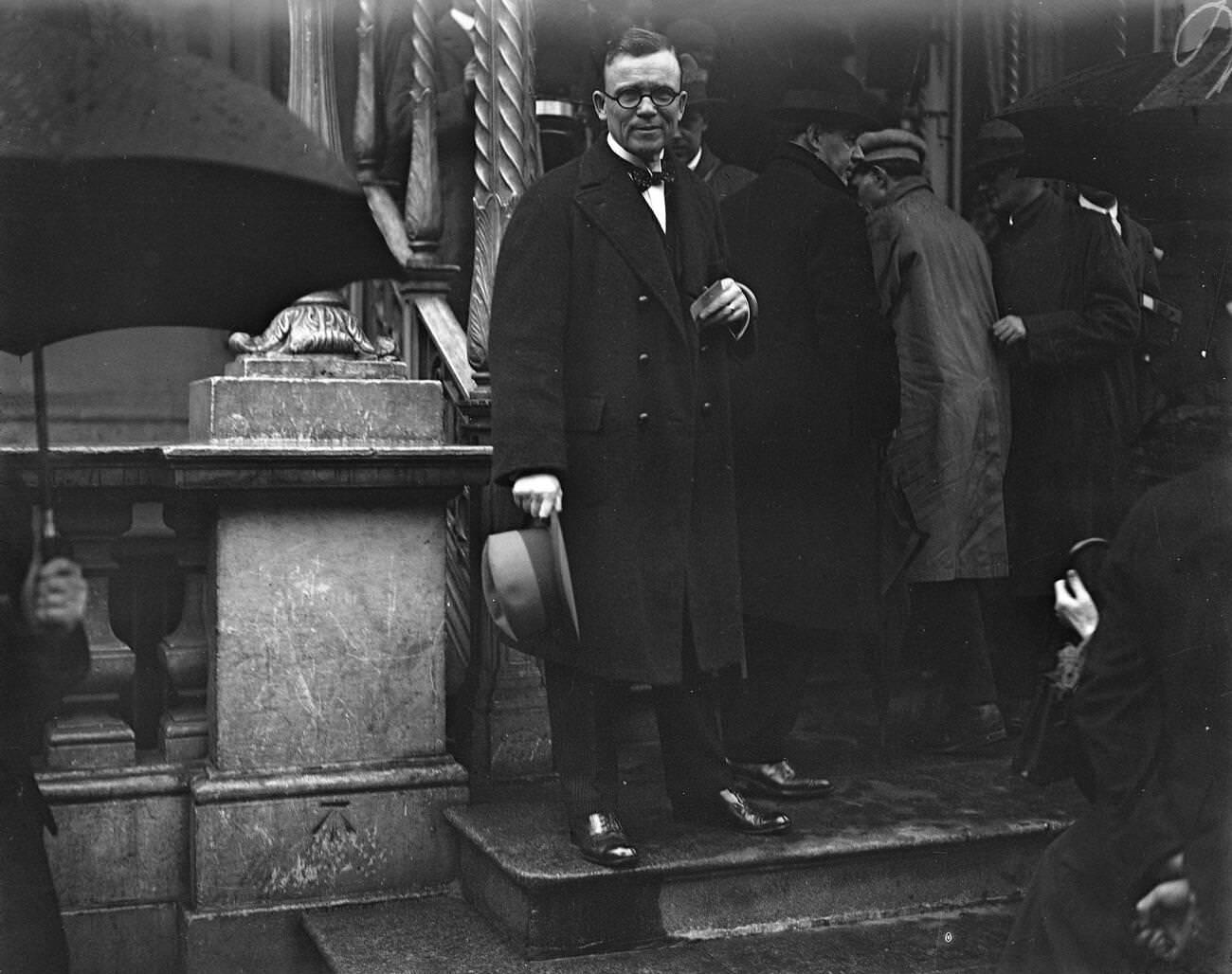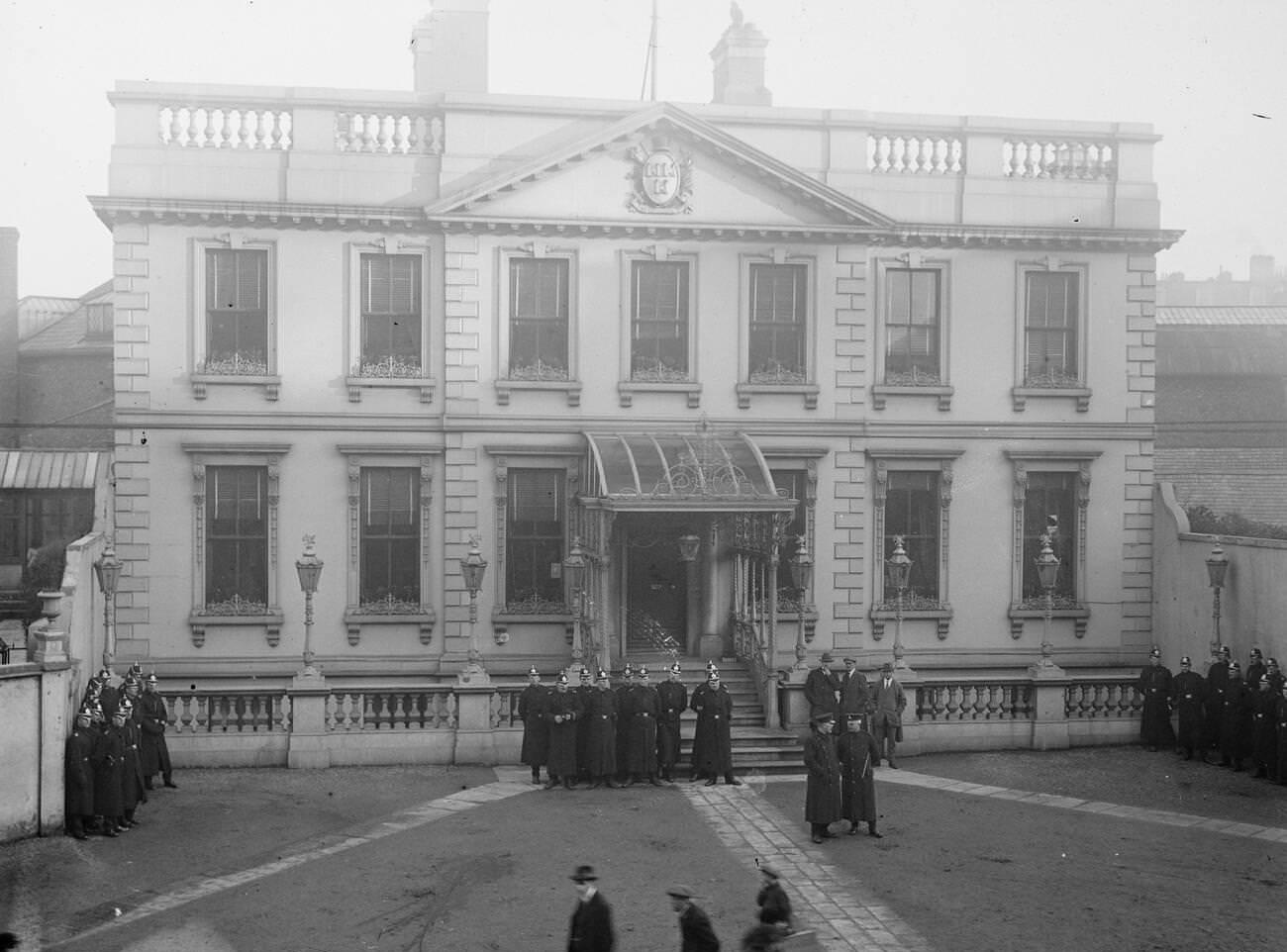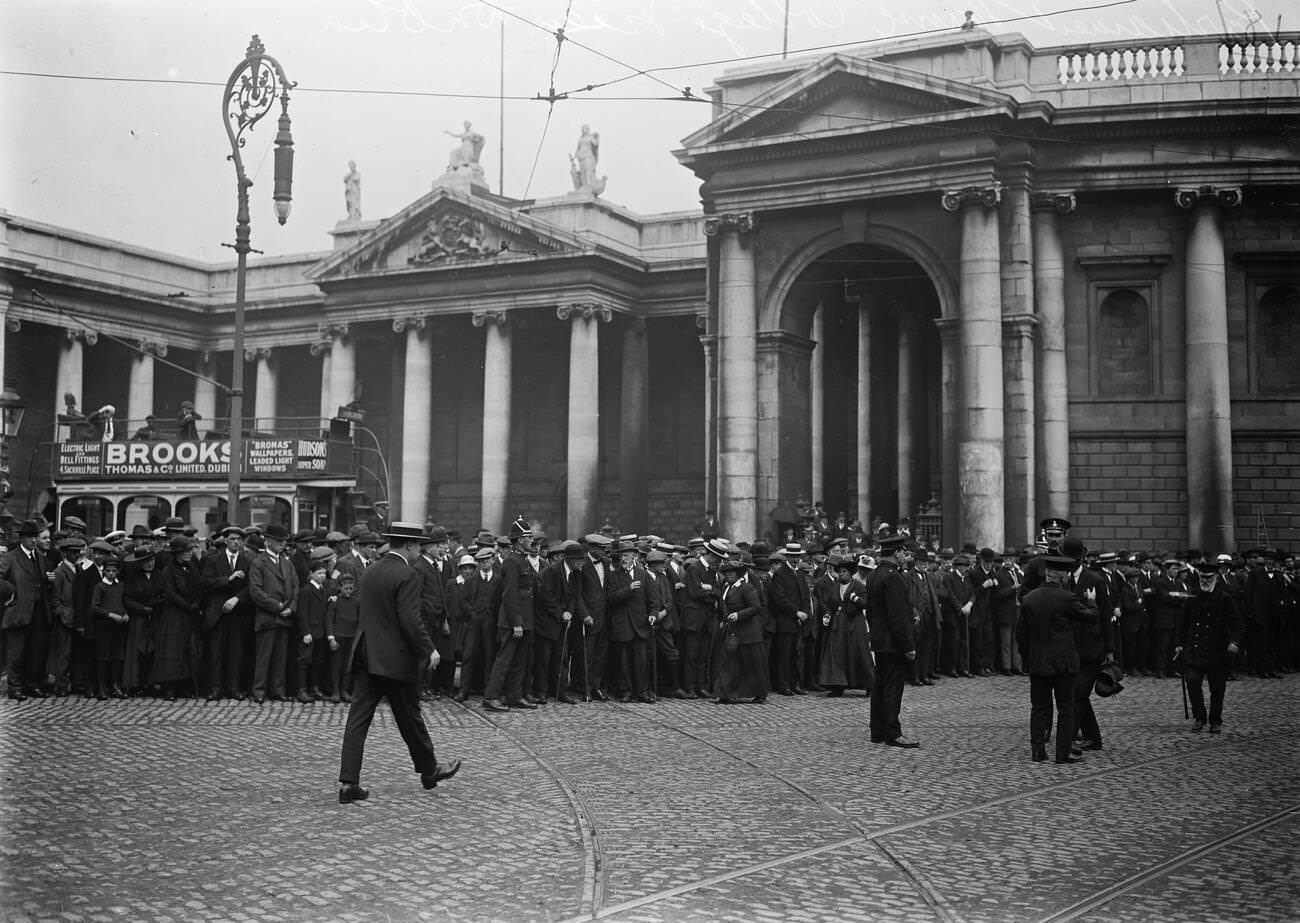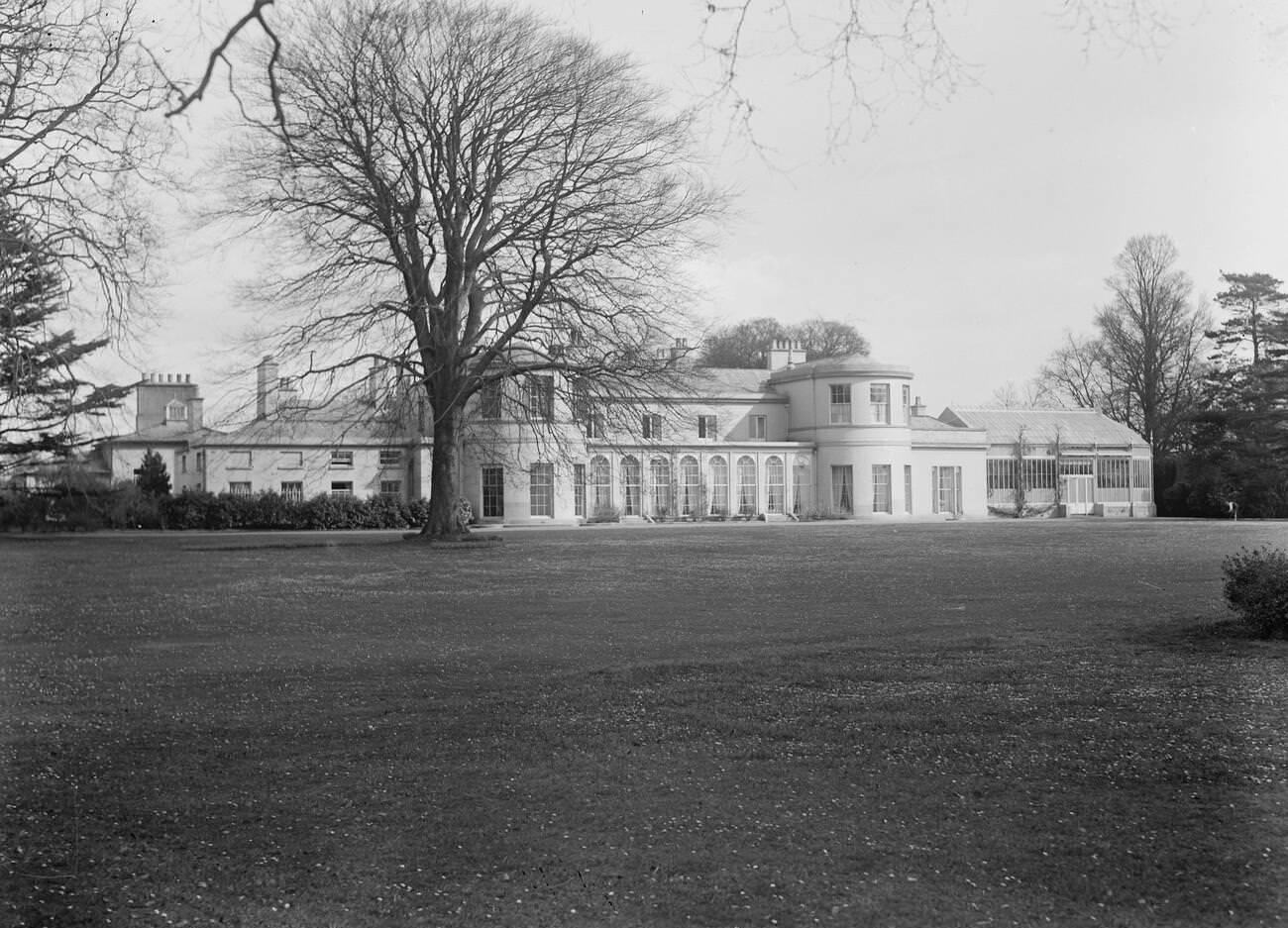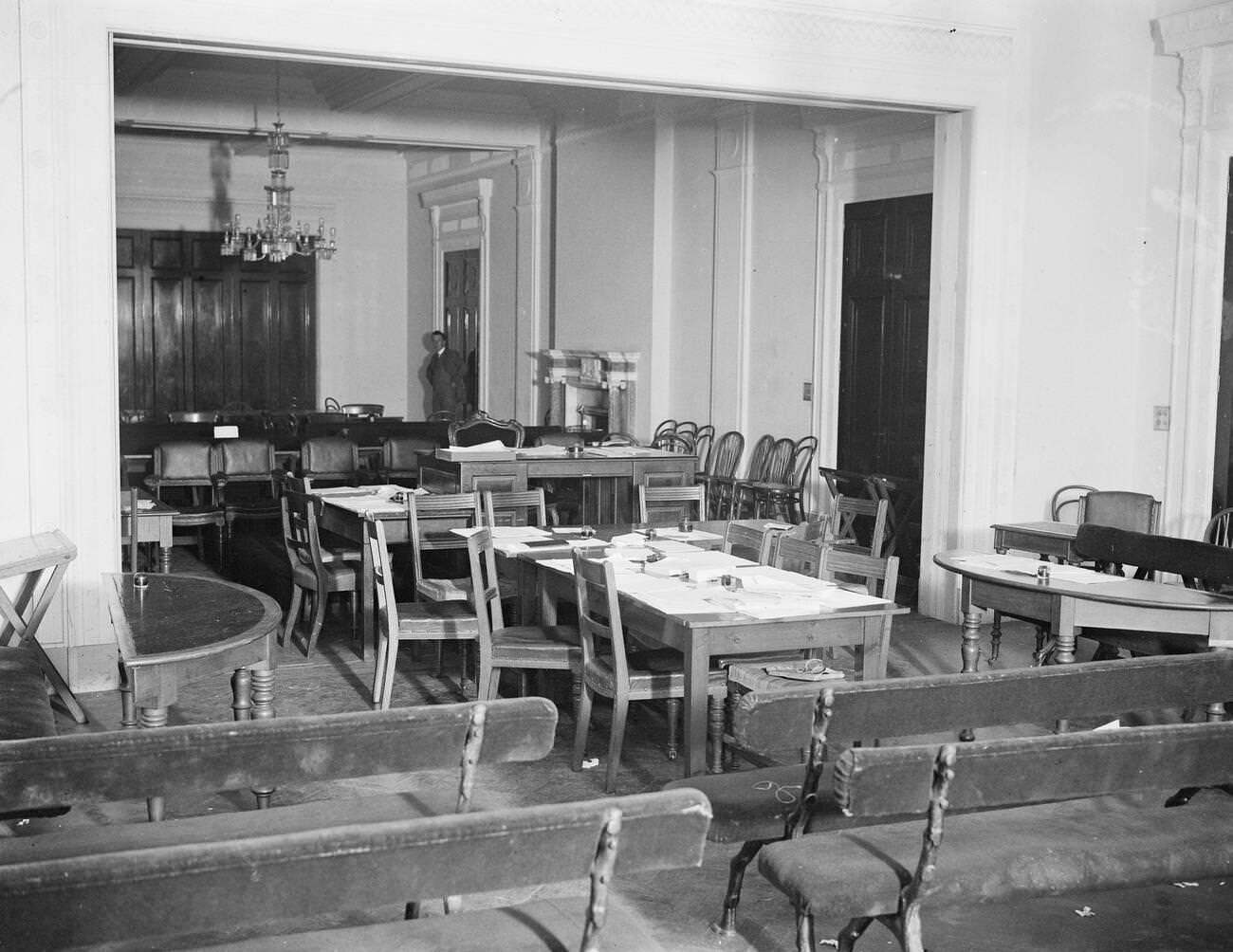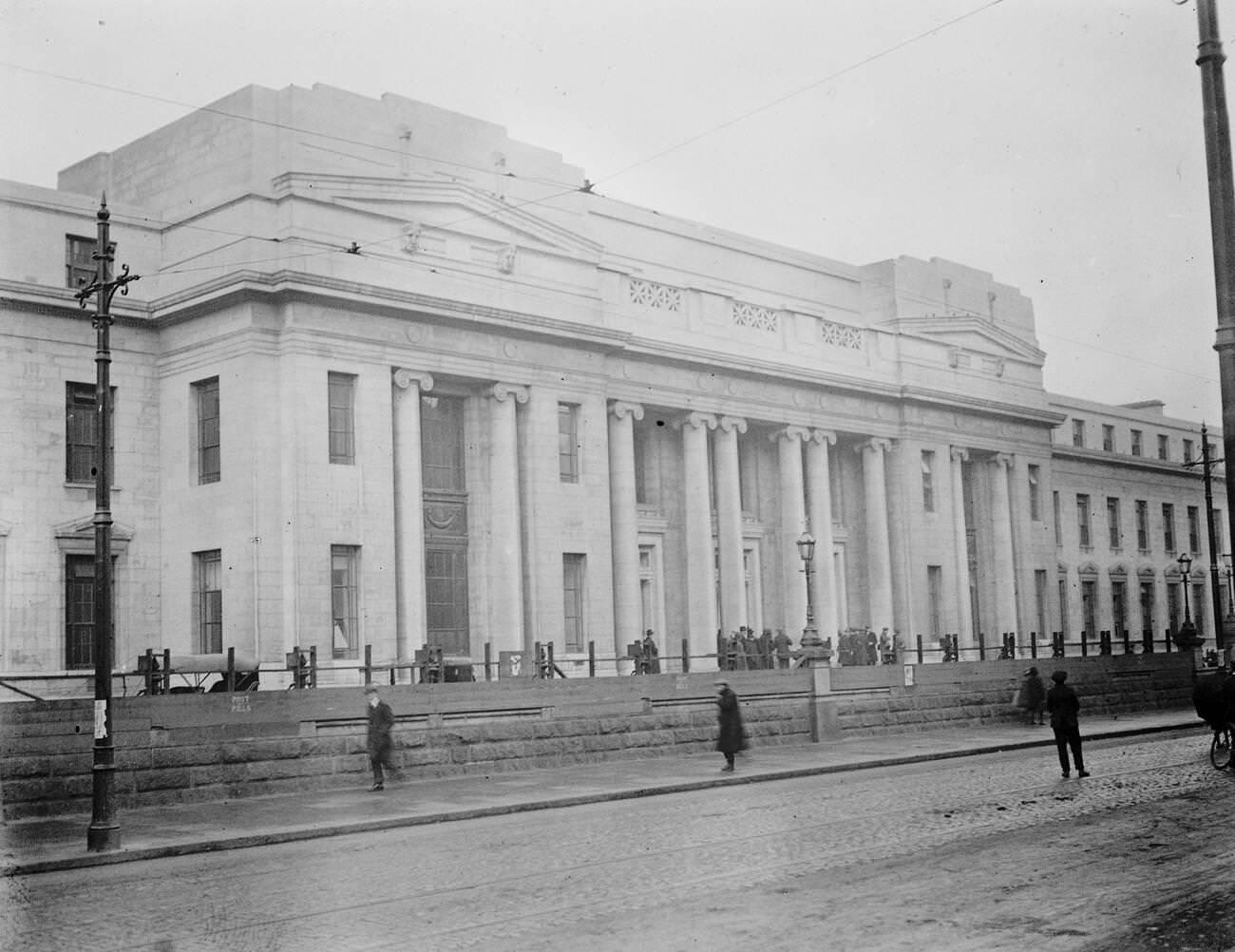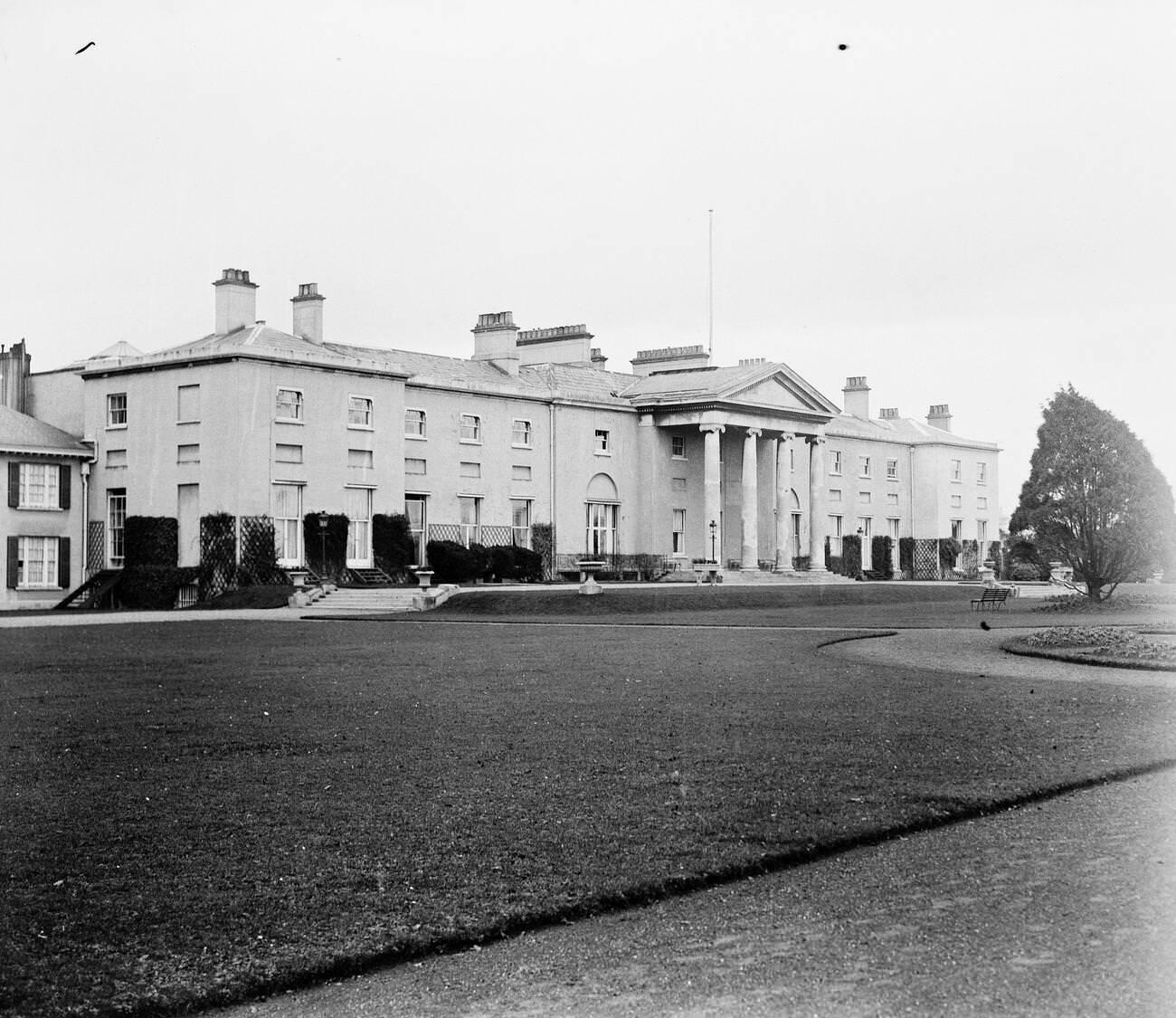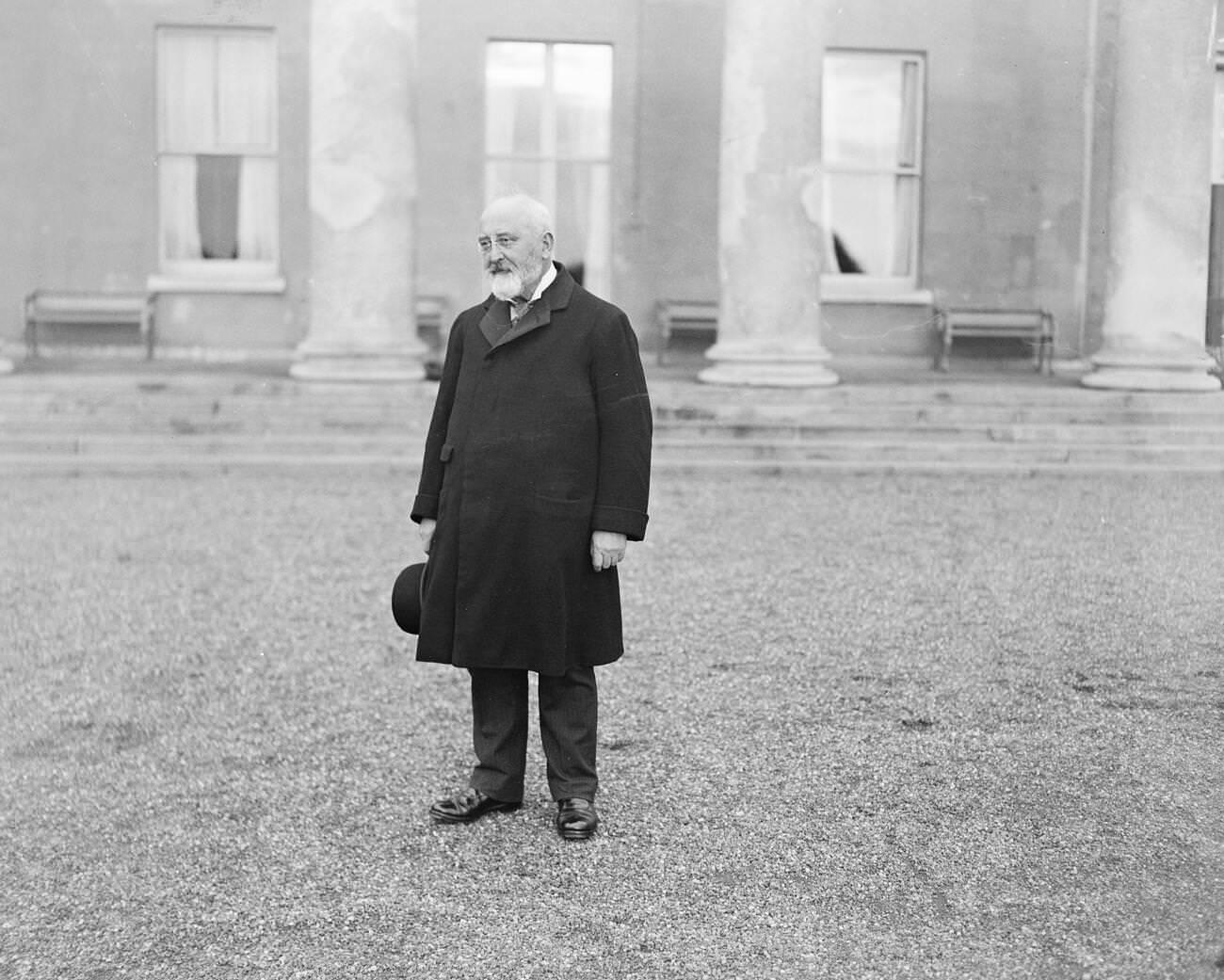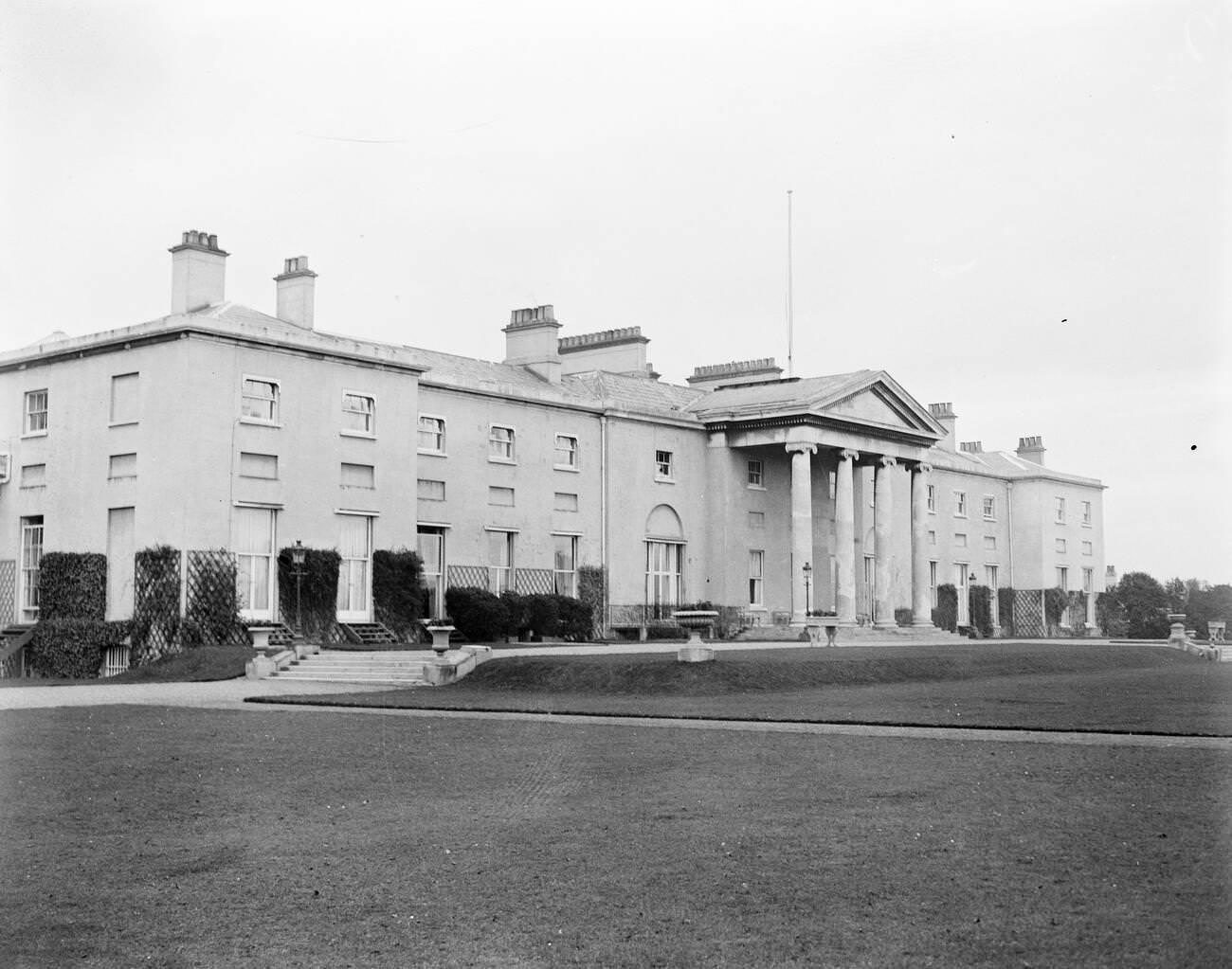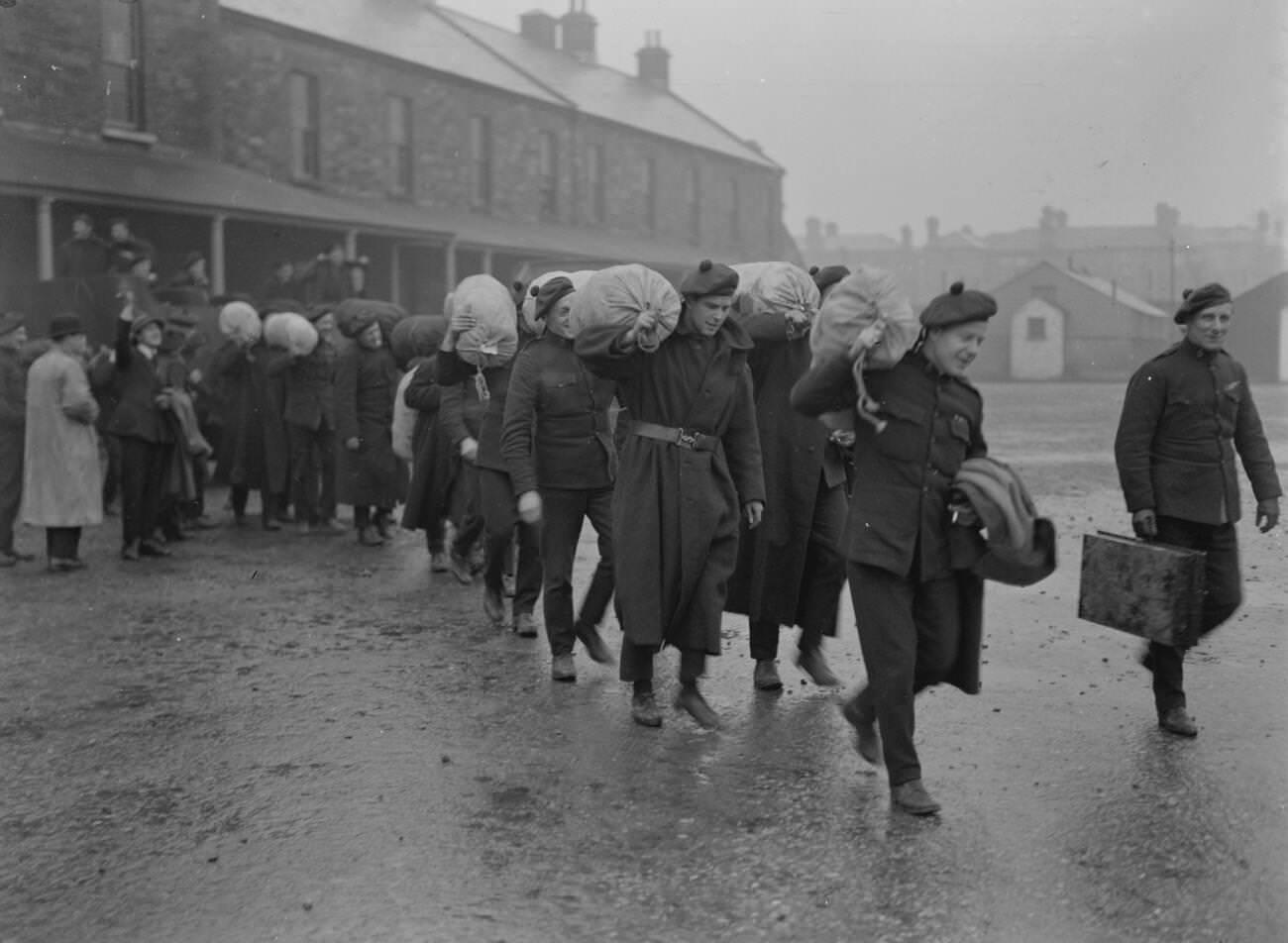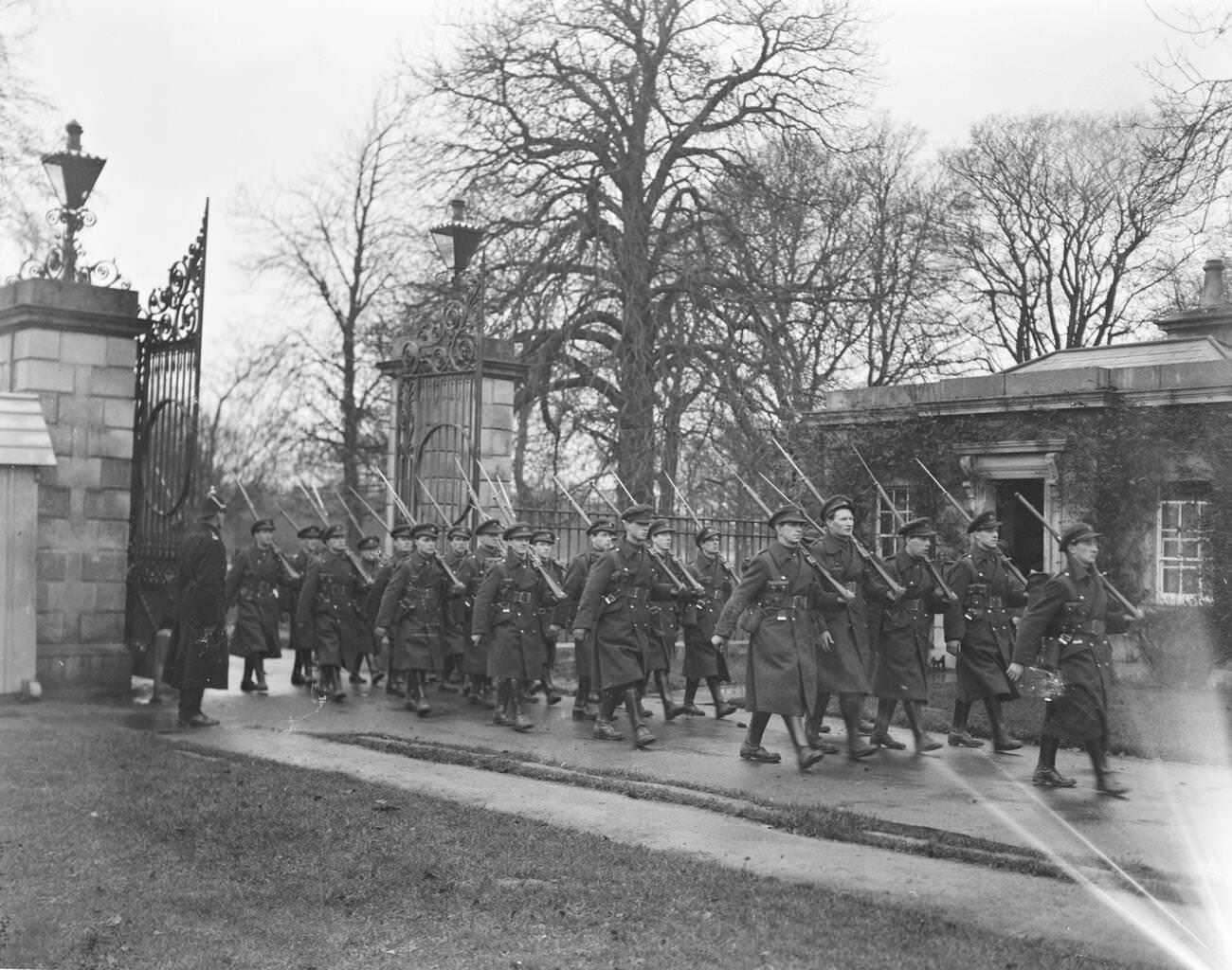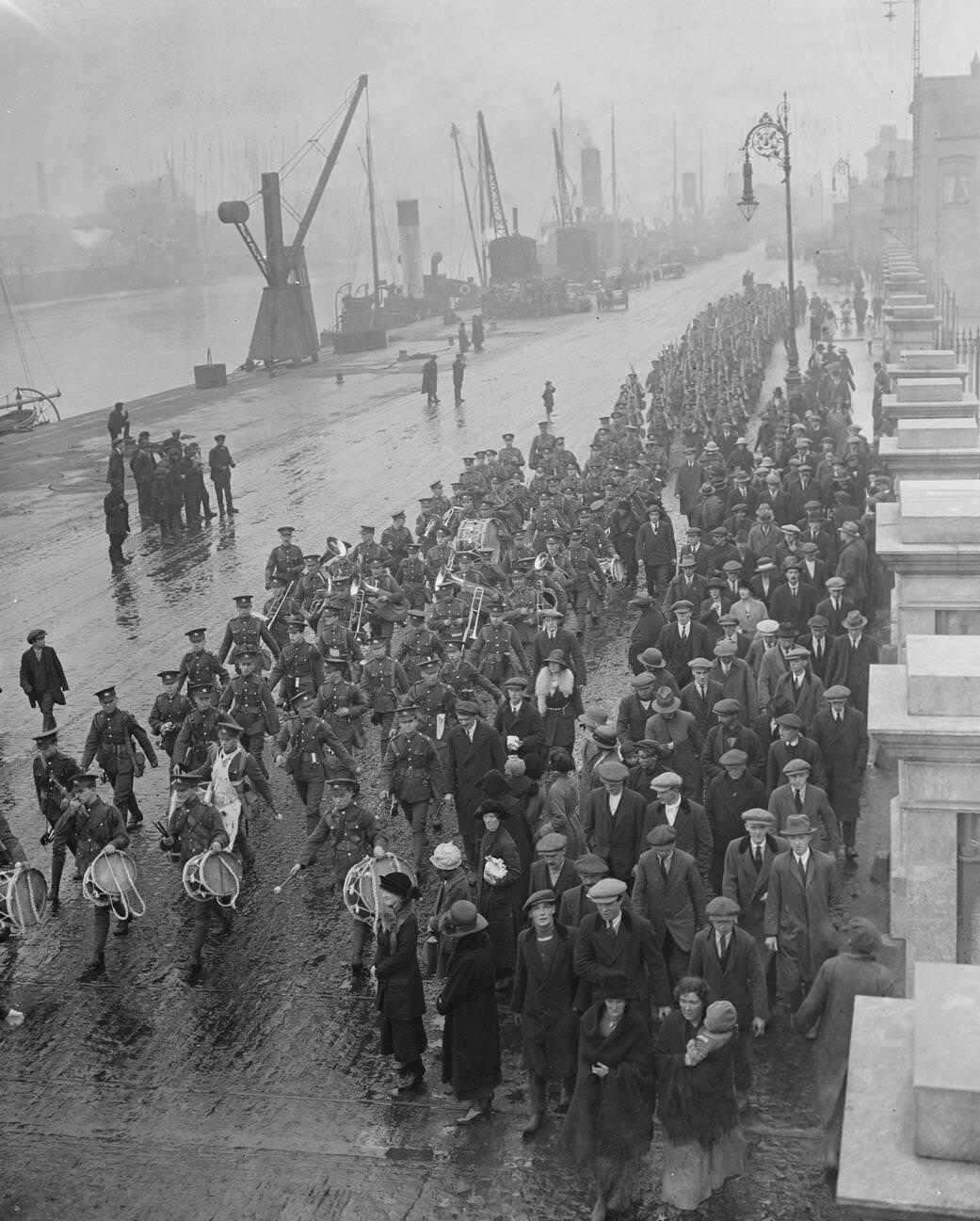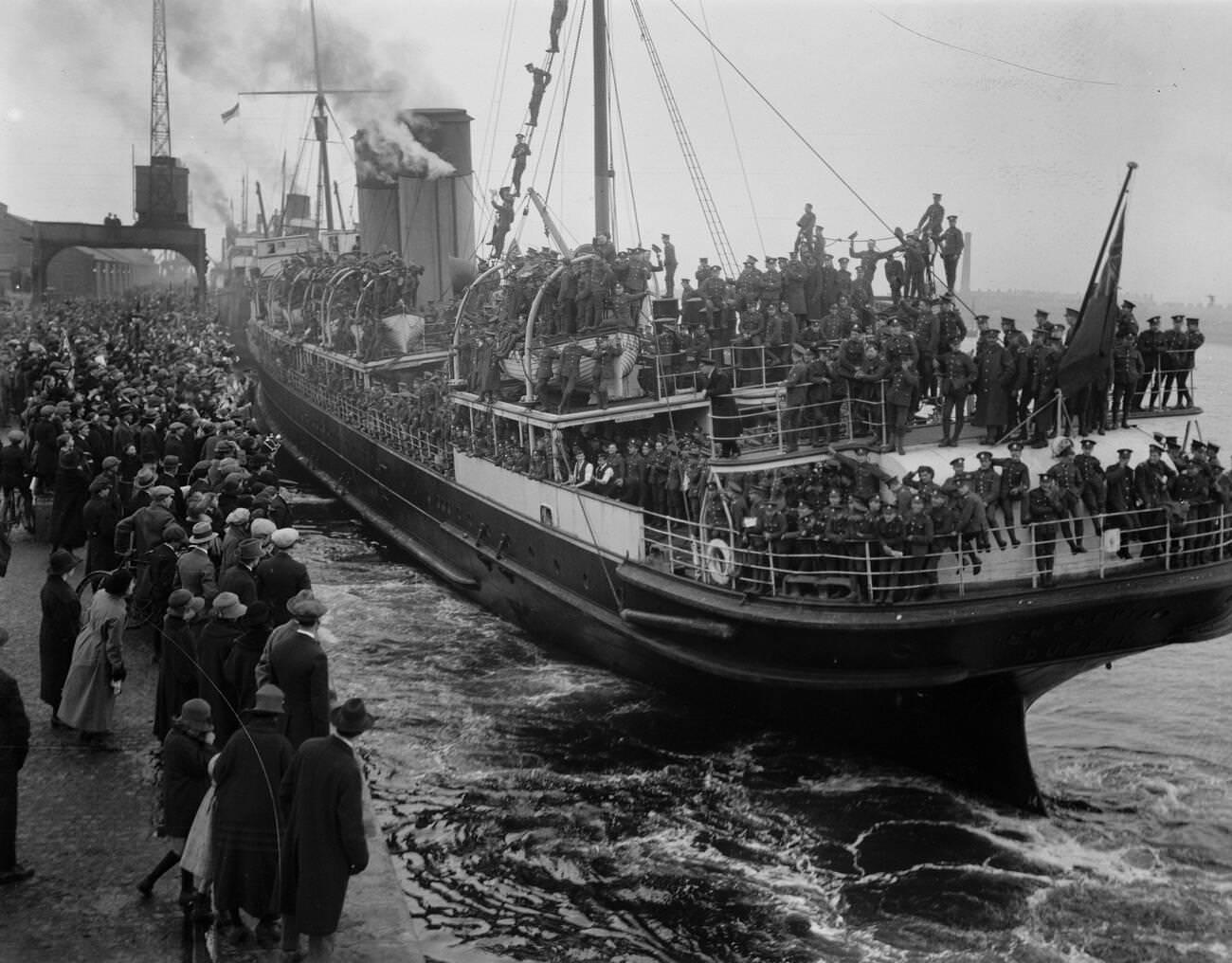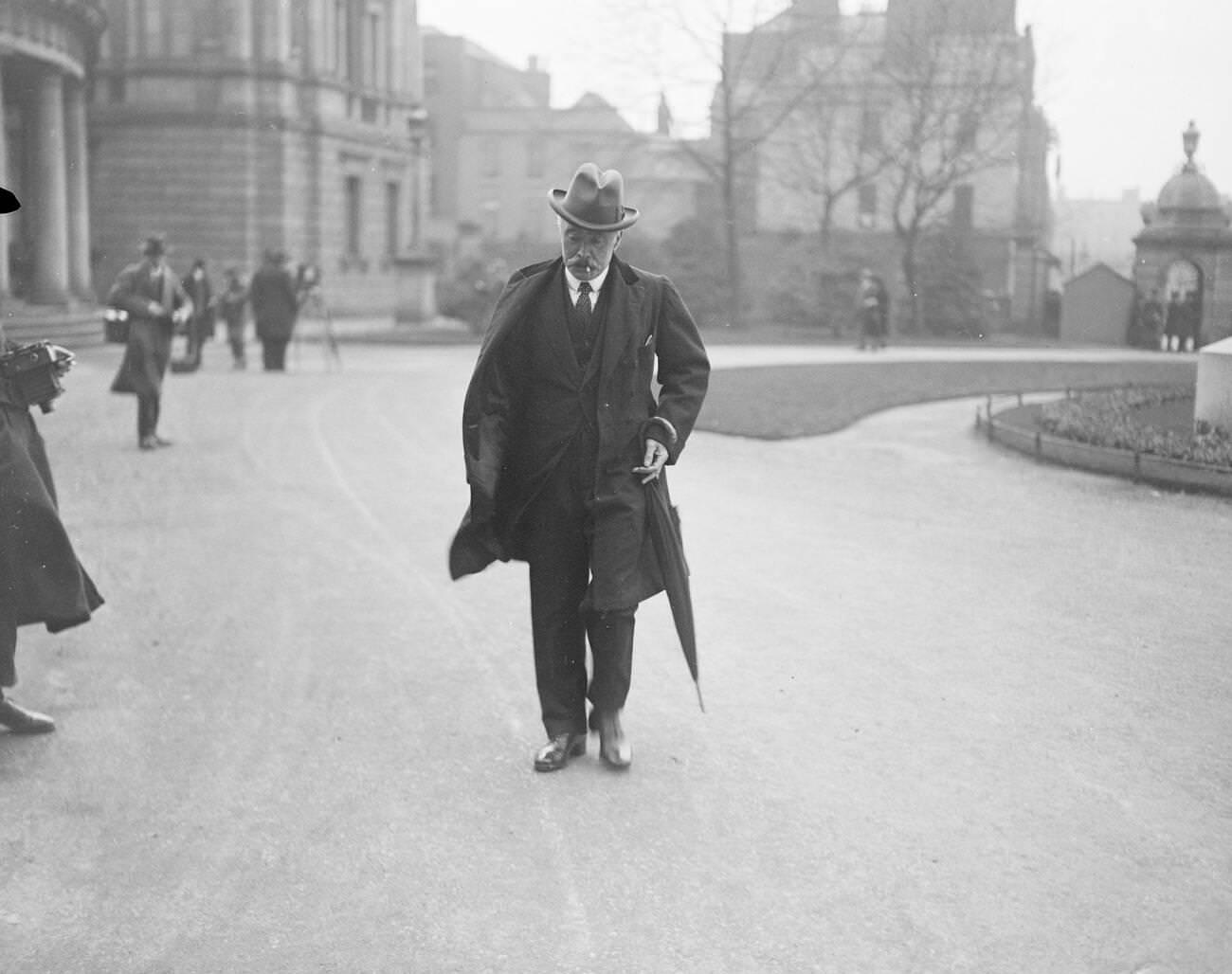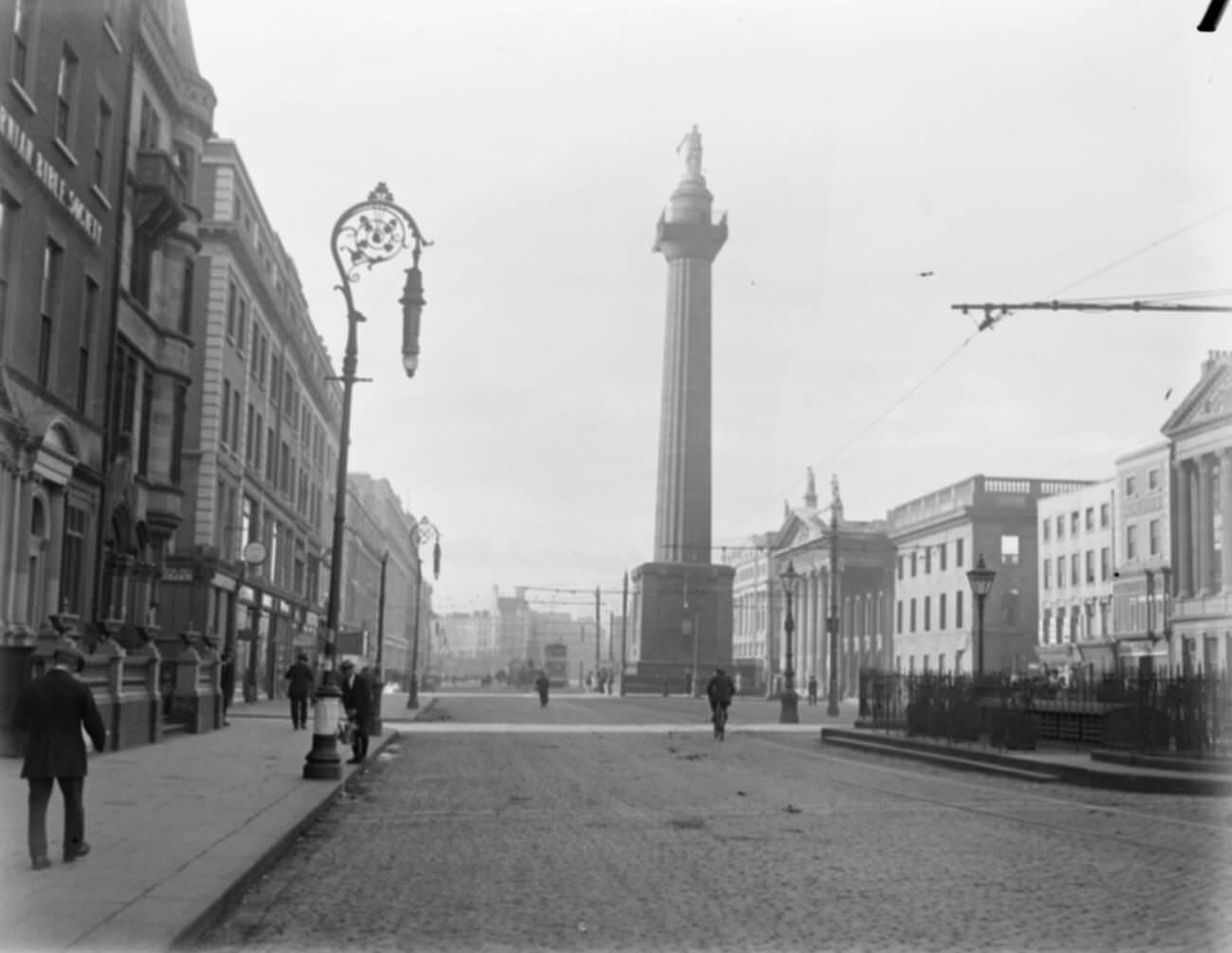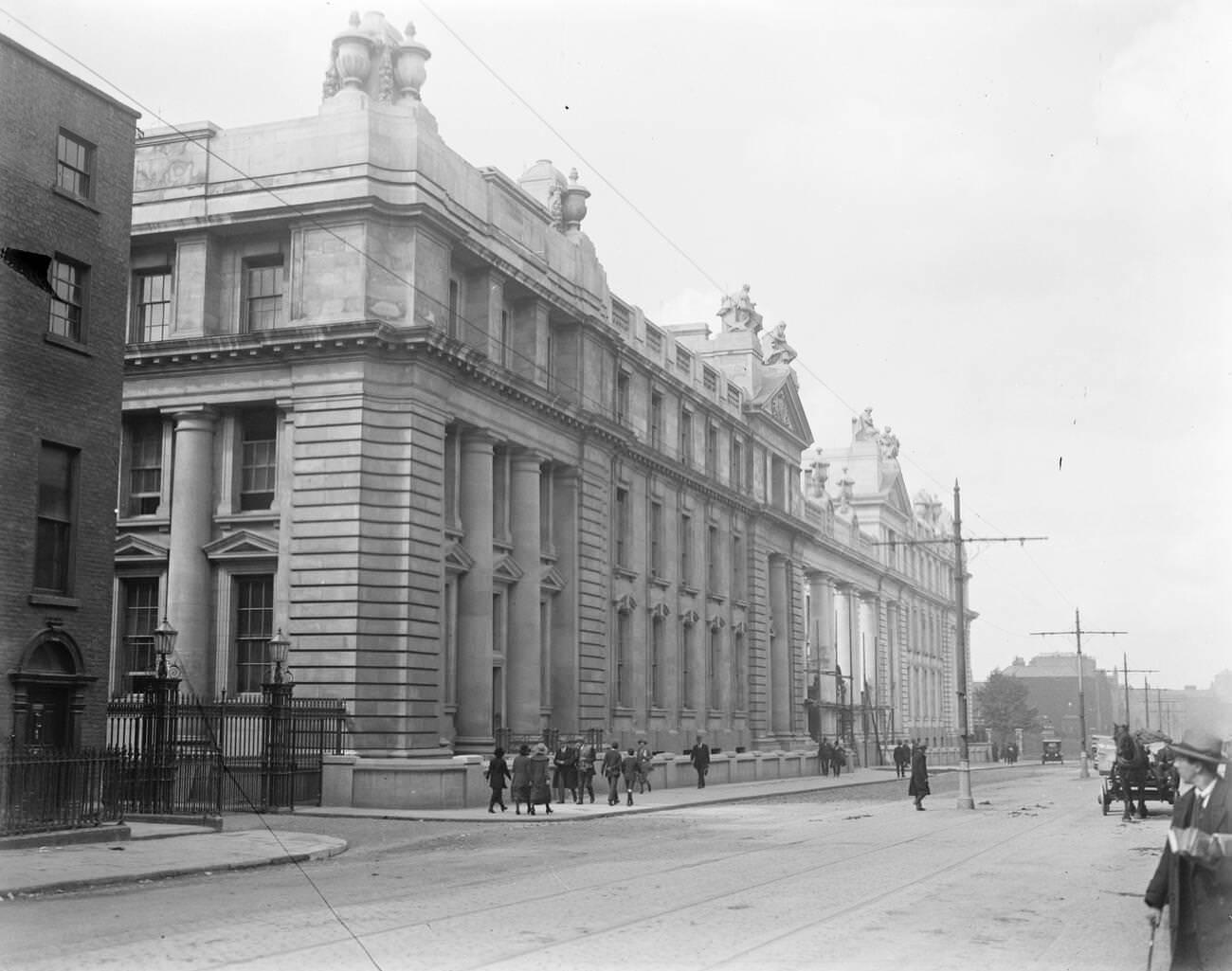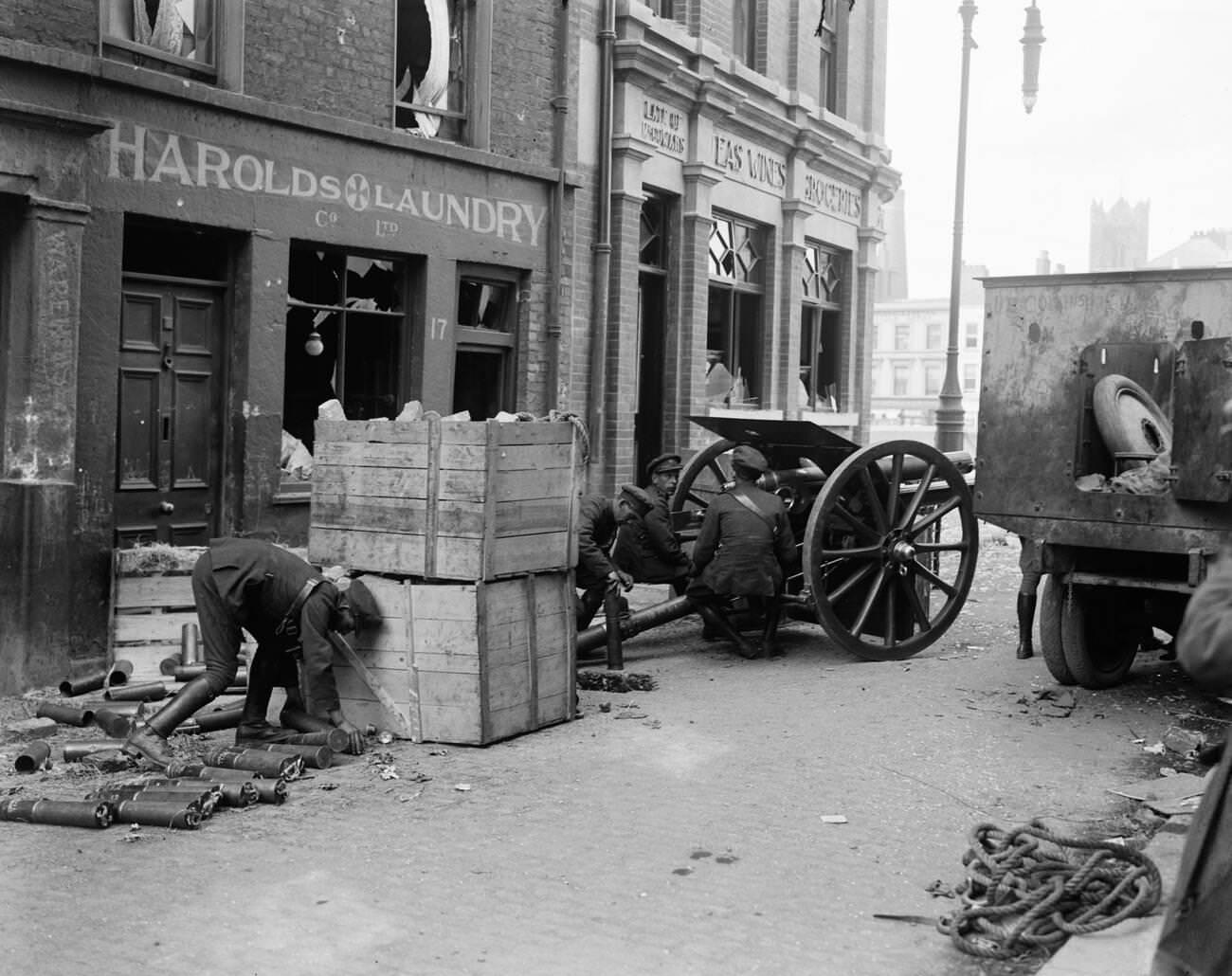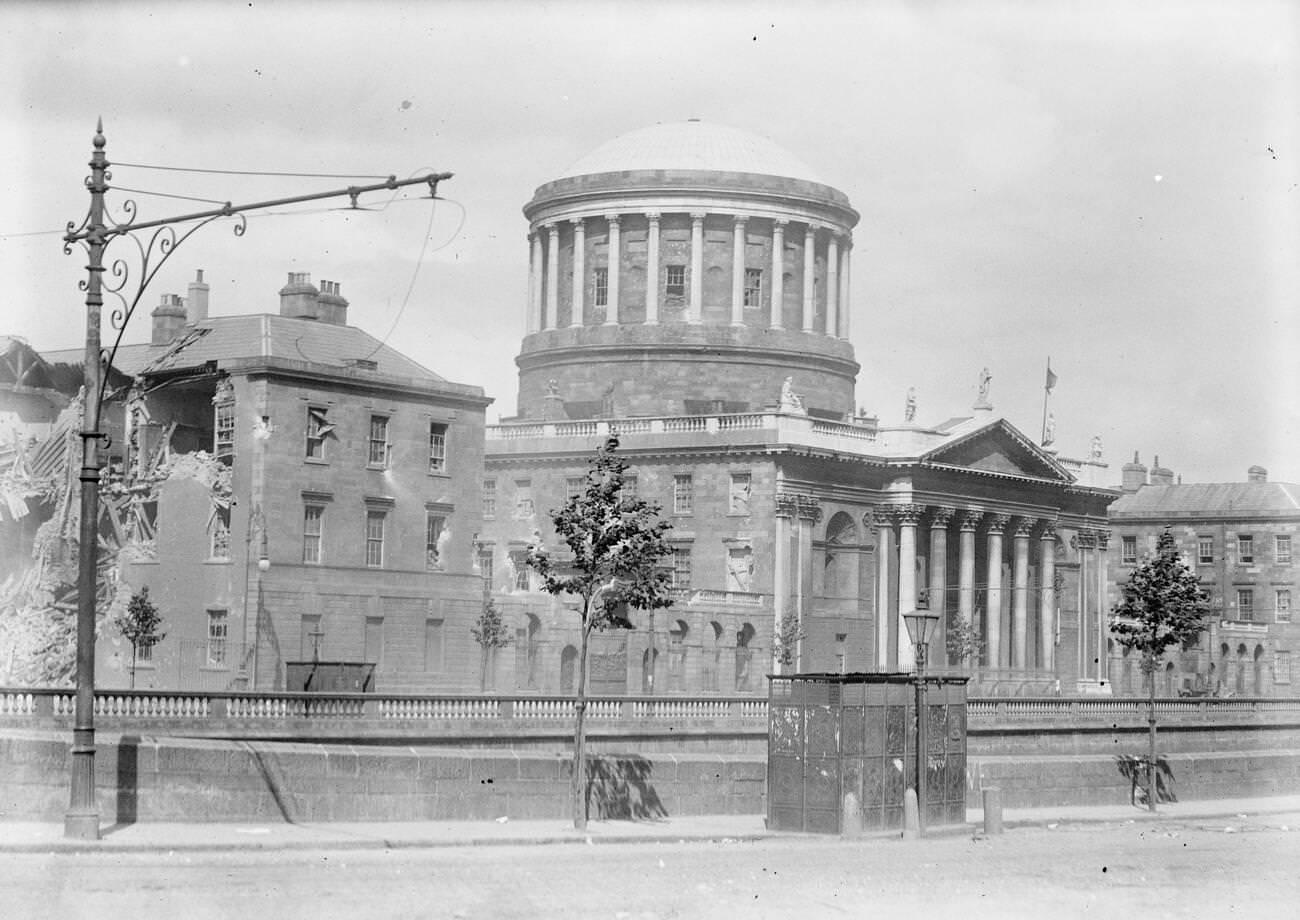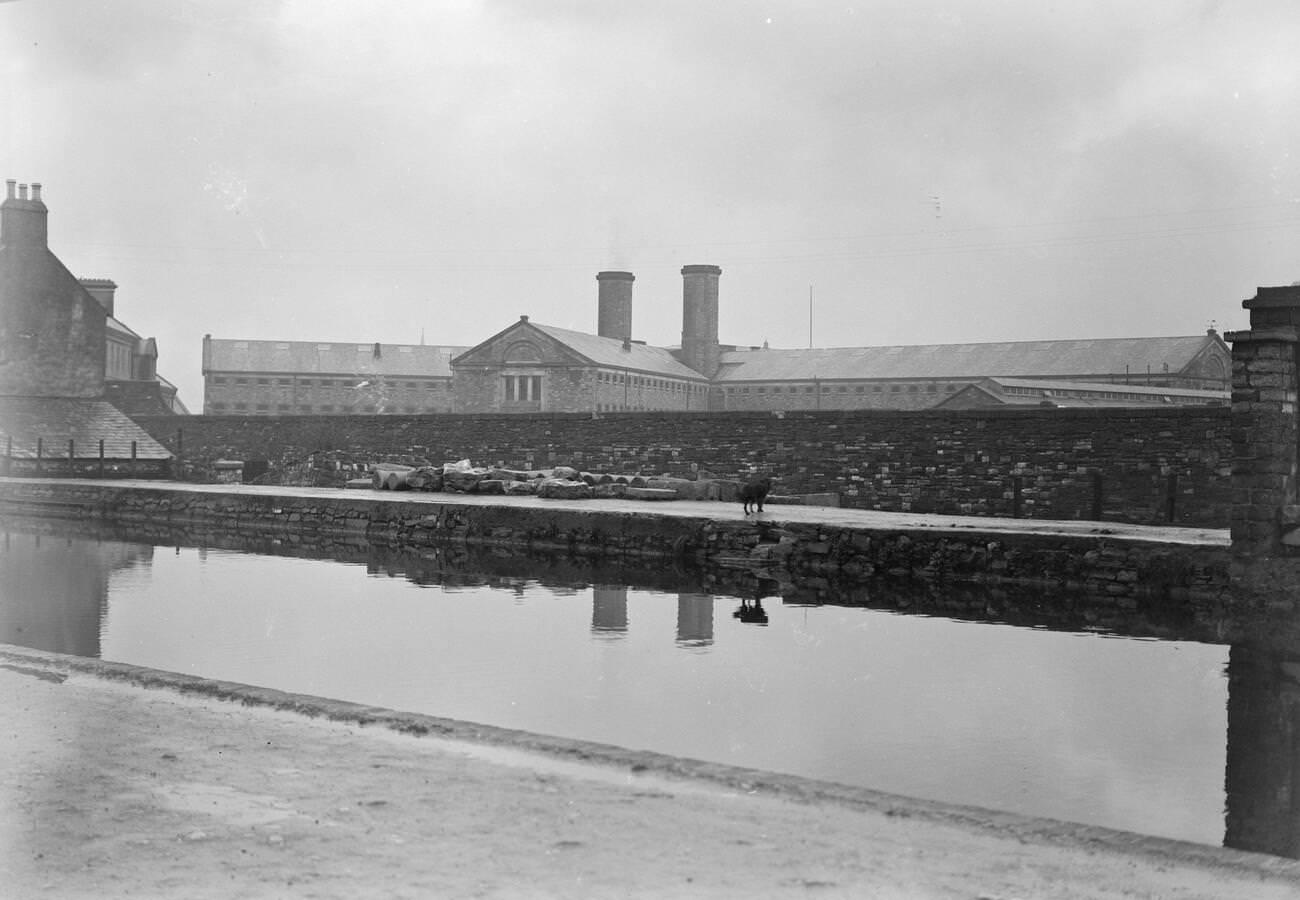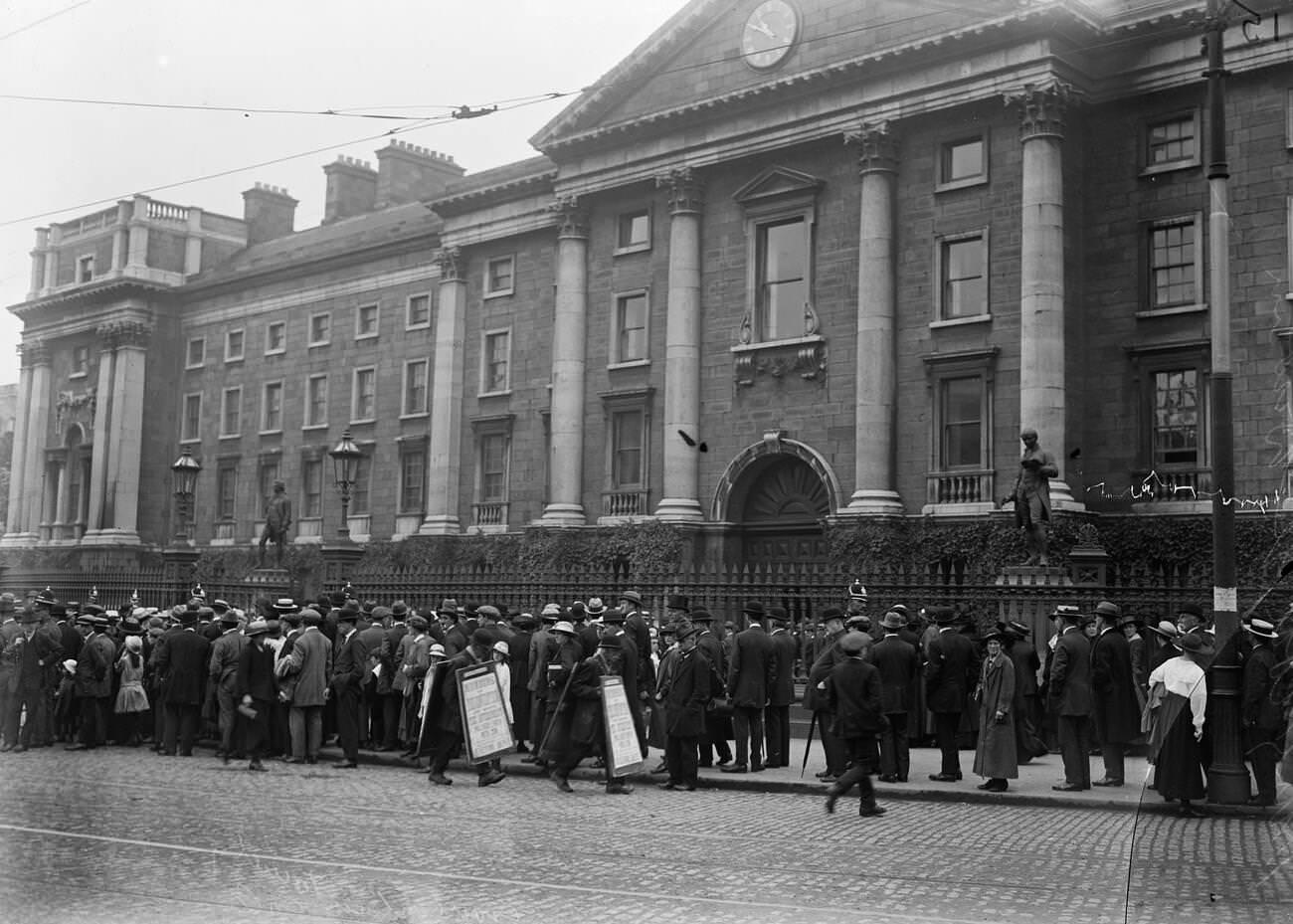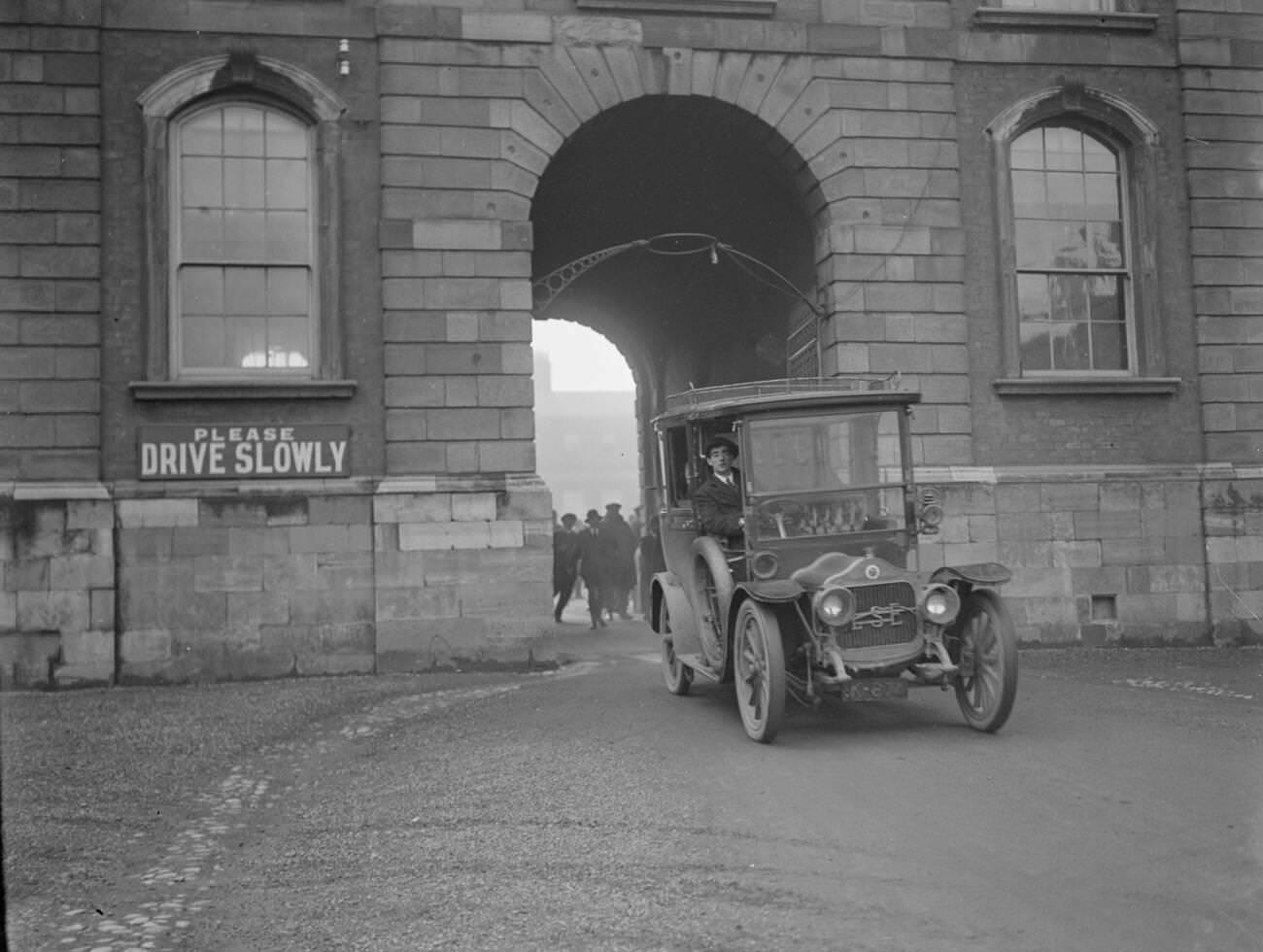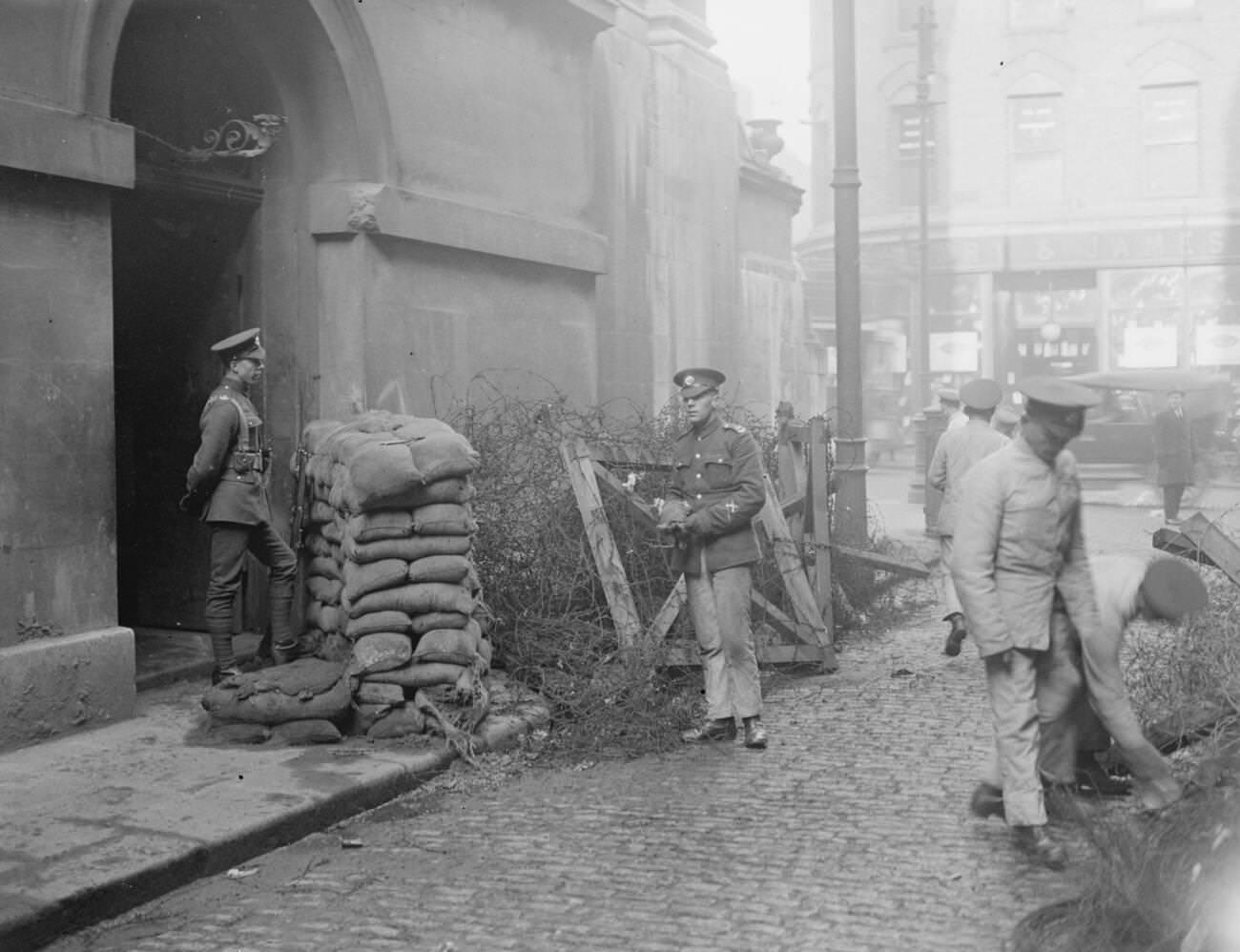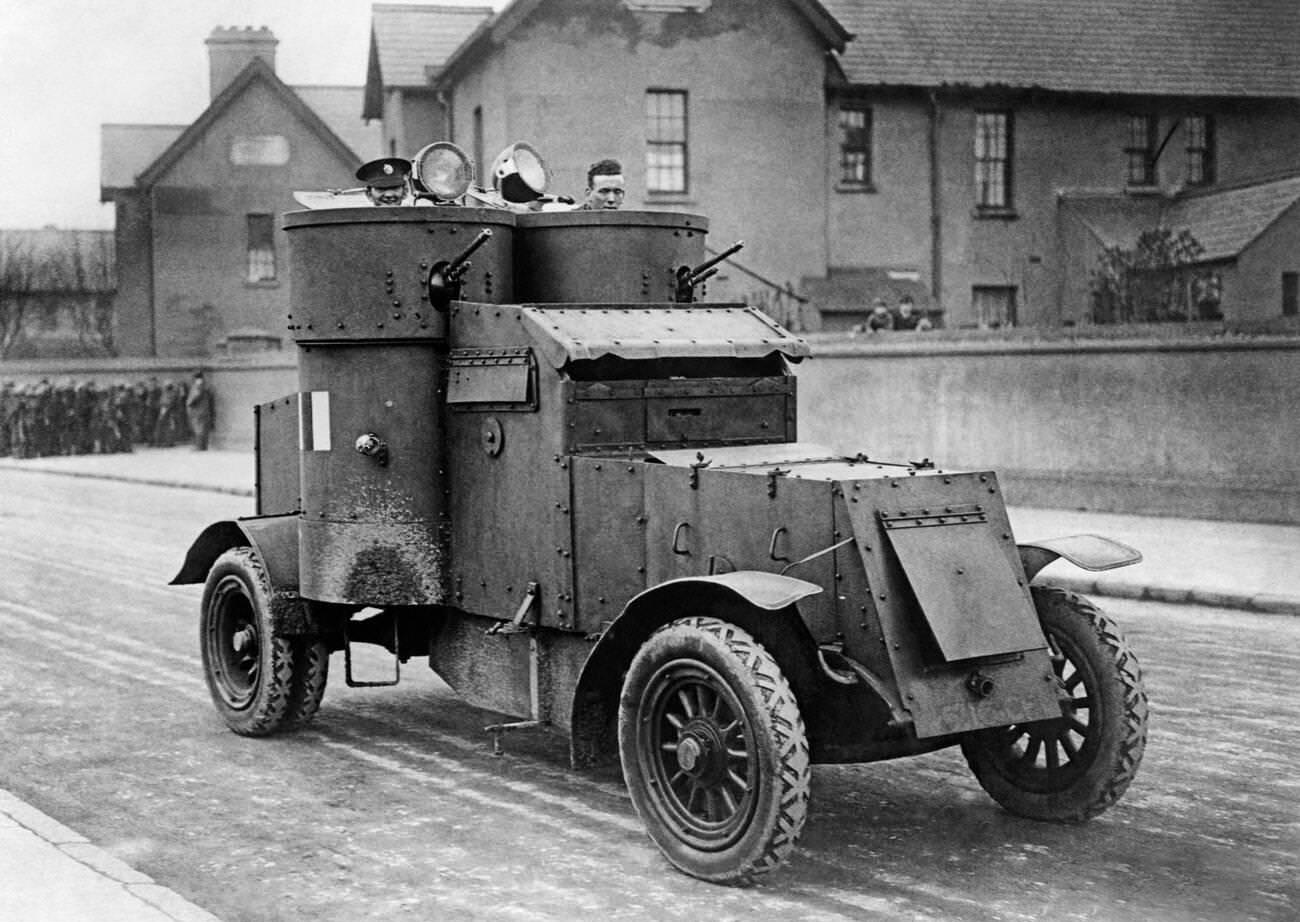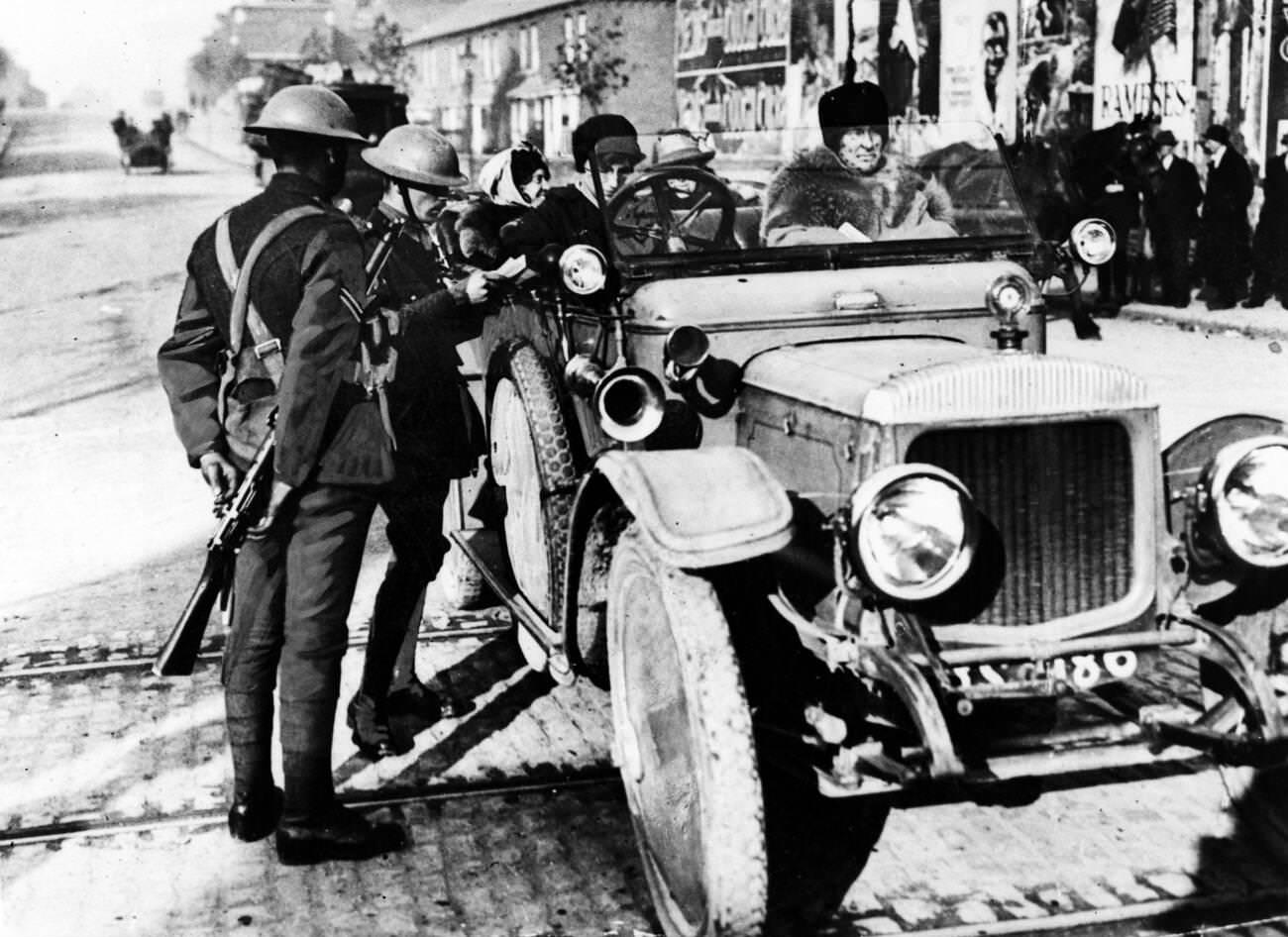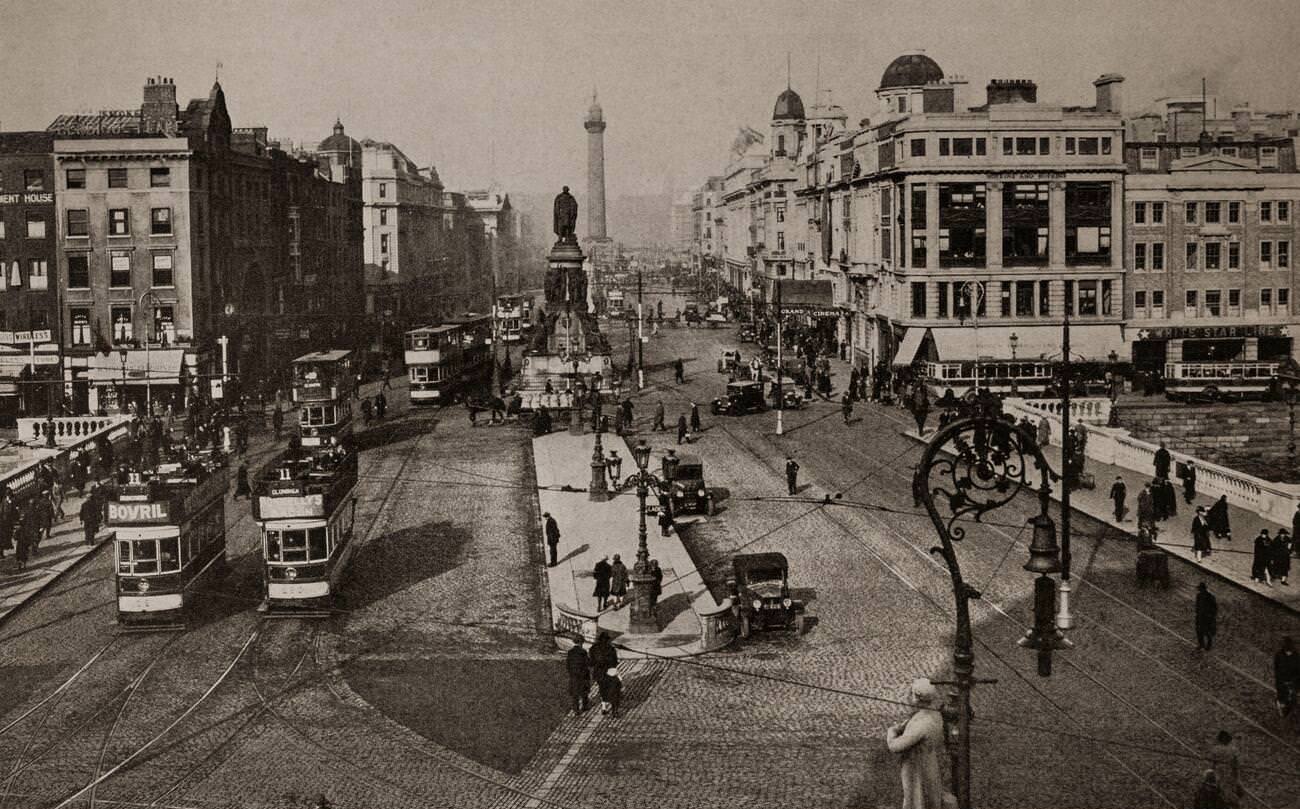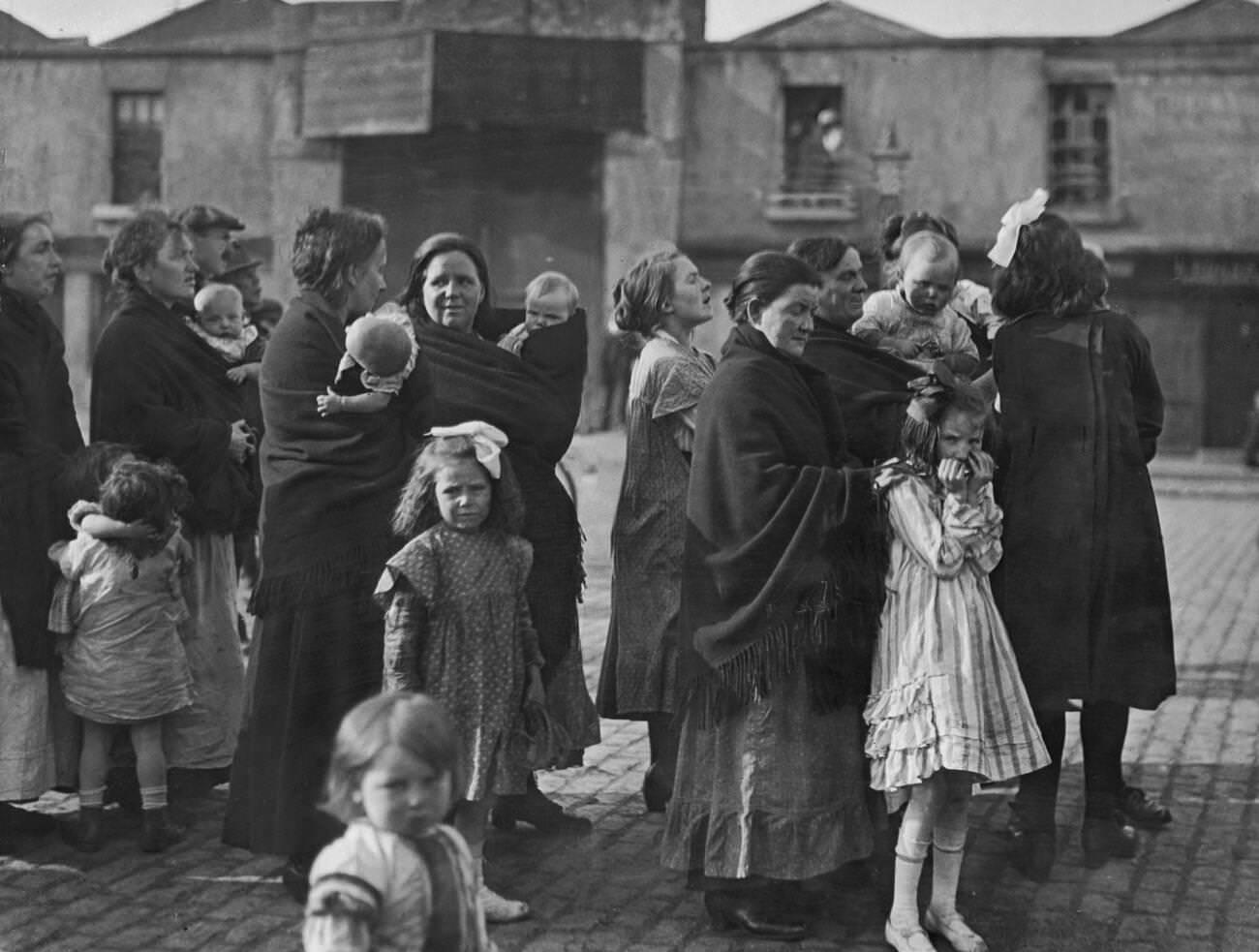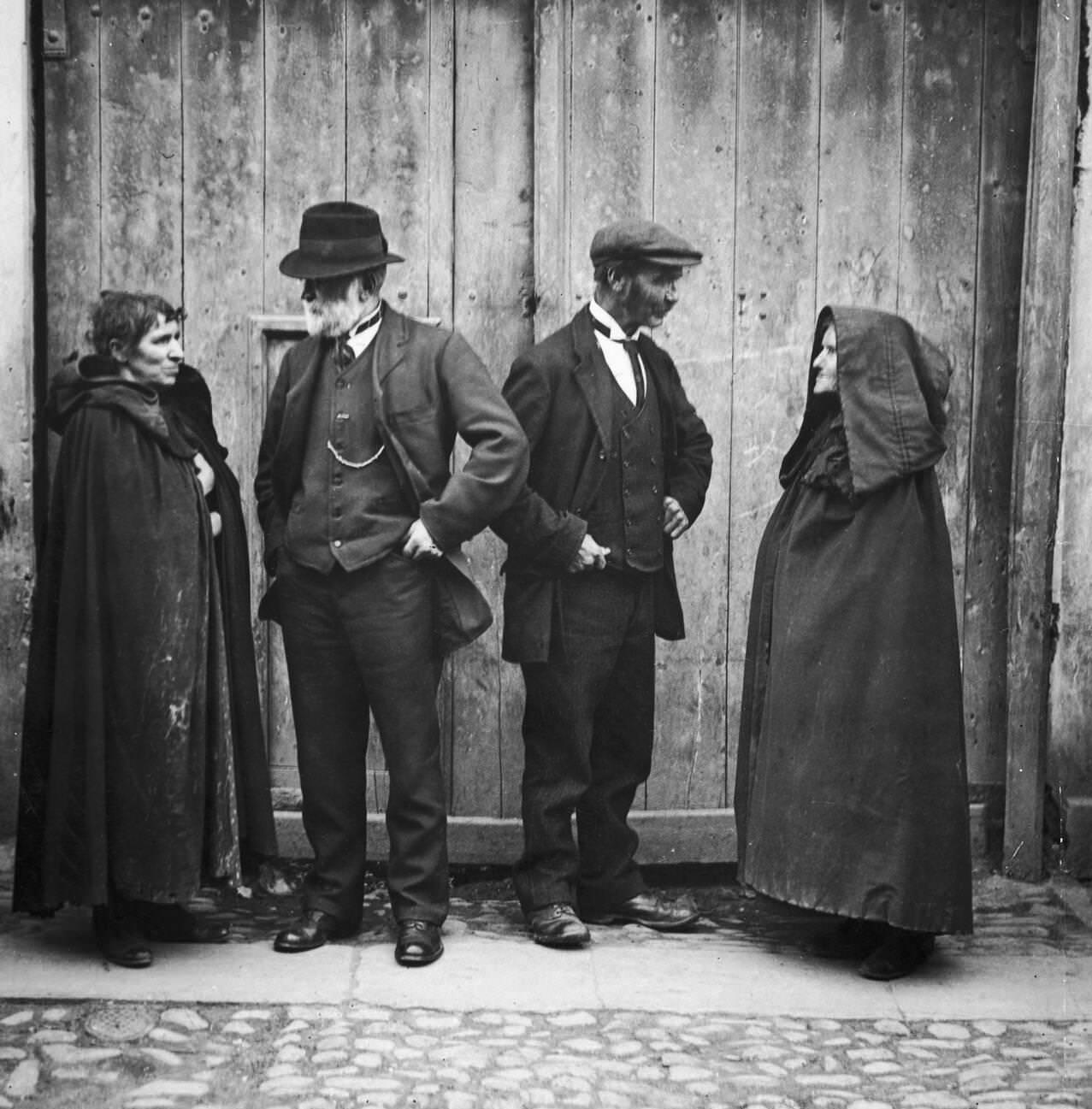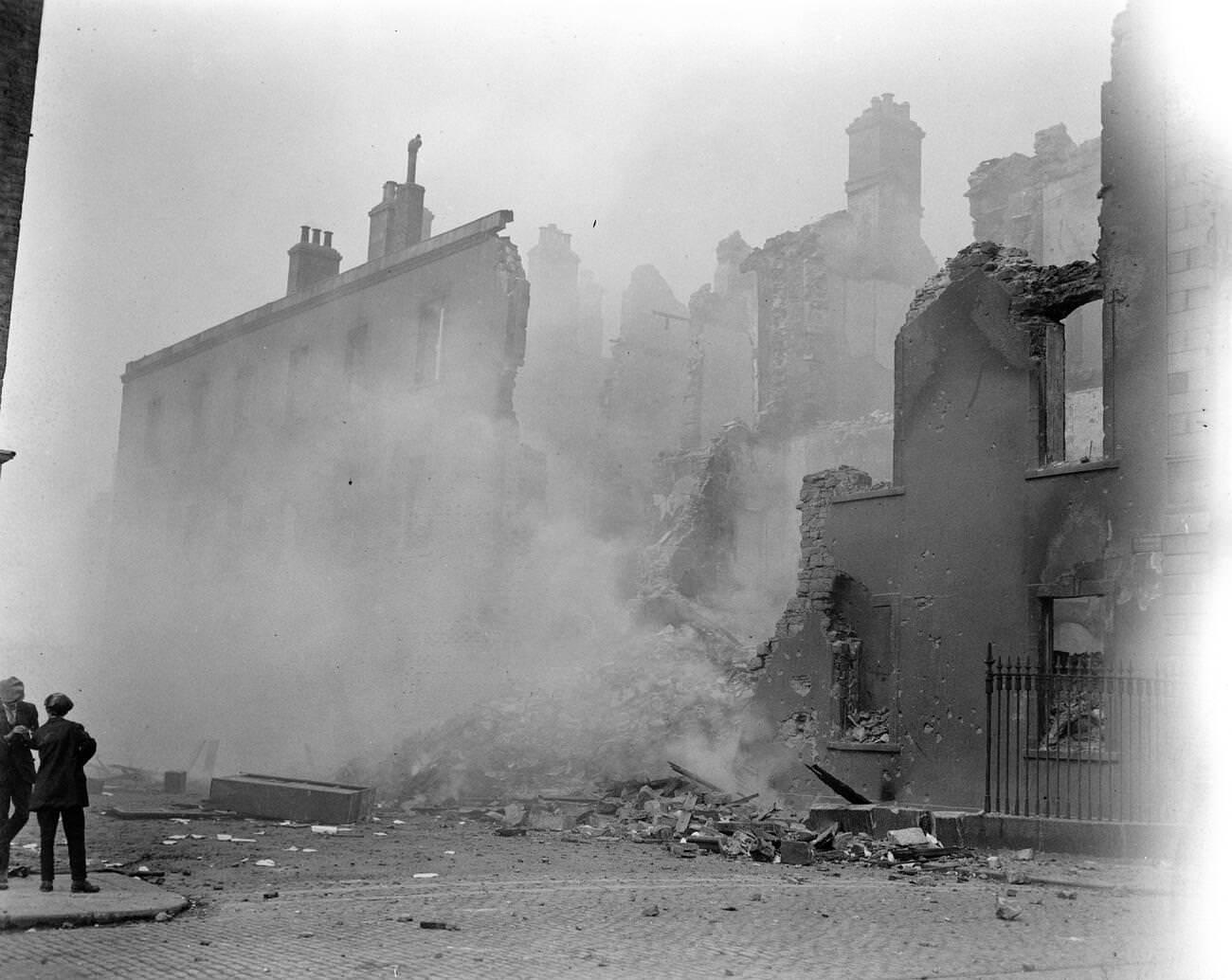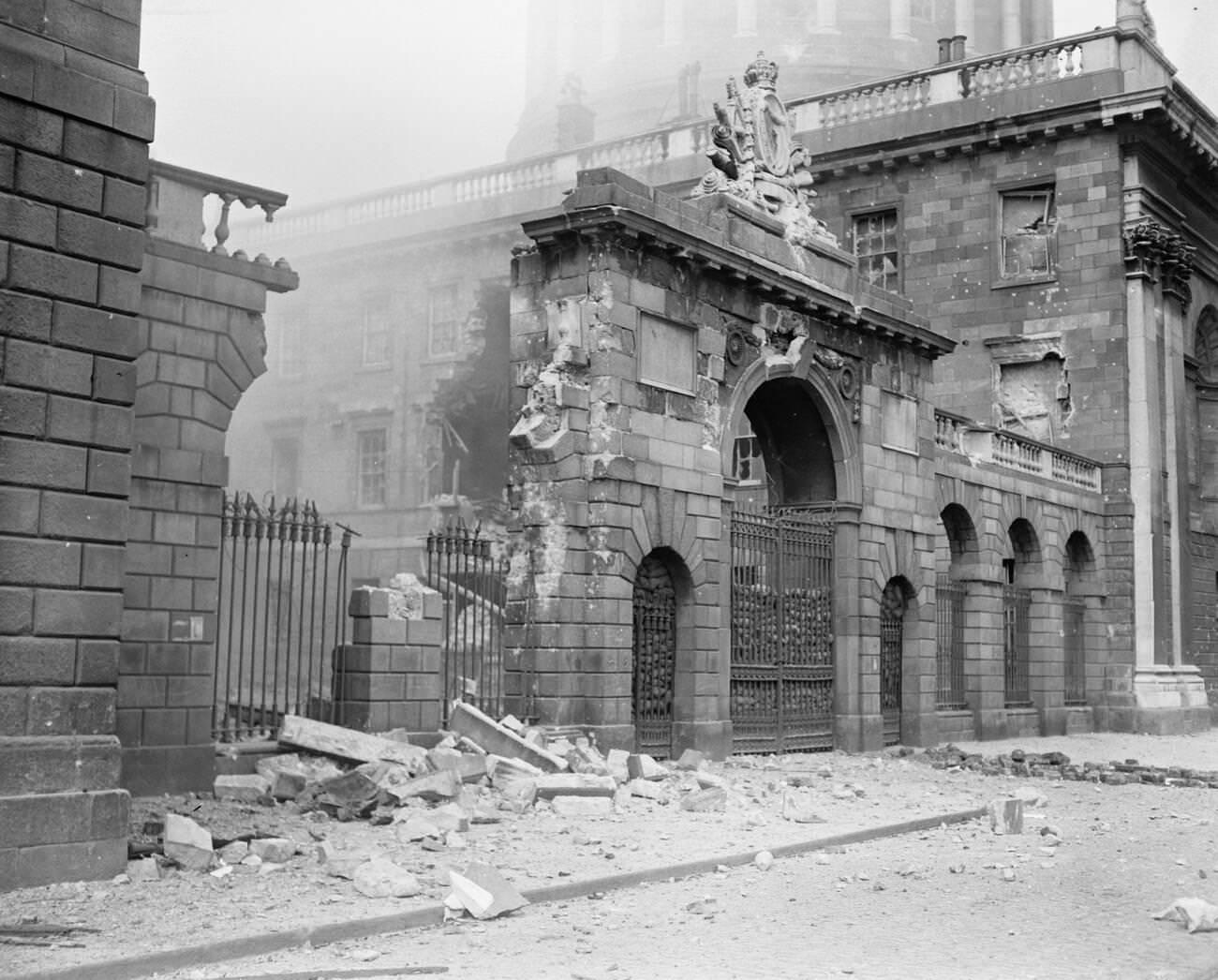The 1920s was a transformative decade for Dublin, marked by significant political, social, and economic changes. Life in Dublin during this time was a mix of tradition and new beginnings, as the city adjusted to its role as the capital of the newly independent Irish Free State.
Life and Society
Life in Dublin in the 1920s was challenging. The city was recovering from the aftermath of the Irish War of Independence (1919-1921) and the subsequent Civil War (1922-1923). Many families had experienced loss and upheaval. Despite these hardships, there was a strong sense of community and resilience.
Education was a priority, with many children attending school. New educational policies aimed to improve literacy and promote the Irish language. Trinity College and University College Dublin were prominent centers of higher education..
Read more
Famous Places and Landmarks
Dublin’s landmarks were witnesses to its turbulent history and cultural rebirth. The General Post Office (GPO) on O’Connell Street, famously damaged during the 1916 Easter Rising, was a symbol of Irish independence. The Four Courts, another significant site, was partially destroyed during the Civil War but remained an important legal center.
St. Stephen’s Green continued to be a popular spot for relaxation and socializing. Phoenix Park, one of the largest enclosed parks in any European capital, offered Dubliners a vast green space for leisure and recreation.
Notable Events
The signing of the Anglo-Irish Treaty in 1921 led to the establishment of the Irish Free State in 1922, with Dublin as its capital. The civil war that followed was a period of intense conflict, but it ended with the consolidation of the Free State.
In 1922, Michael Collins, a key figure in the fight for independence, was assassinated, leaving a significant impact on the nation’s politics. The decade also saw the foundation of the Irish Free State Army and the establishment of the new government.
Economy and Construction
The economy of Dublin in the 1920s was slowly rebuilding after years of conflict. The port of Dublin was vital for trade, and industries such as brewing, textiles, and manufacturing were important for employment. Guinness, a major employer, continued to be a significant presence in the city.
Construction projects in Dublin reflected the city’s recovery and growth. The rebuilding of damaged structures and the development of new housing were priorities. Public works projects aimed at improving infrastructure, such as roads and public buildings, were undertaken to support the growing population.
Restaurants and Food
Dubliners enjoyed a variety of dining options in the 1920s. Upscale restaurants and hotels, like the Shelbourne Hotel, remained popular for the wealthy. Middle-class families frequented local cafes and bistros, while street vendors and small eateries served the working class.
Traditional Irish dishes, such as stew, colcannon, and soda bread, were staples. Fish and chips were a common and affordable meal, especially near the docks. Pubs played a central role in social life, offering hearty meals and a place to gather.
Culture and Entertainment
The cultural scene in Dublin during the 1920s was lively and diverse. The Abbey Theatre, established in 1904, continued to be a center for Irish drama, showcasing works by playwrights like Sean O’Casey and W.B. Yeats. The Gate Theatre, founded in 1928, brought innovative productions to the city.
Music halls, cinemas, and dance halls were popular entertainment venues. Jazz and traditional Irish music coexisted, reflecting both modern influences and cultural heritage. Dublin’s literary scene flourished, with figures like James Joyce and Samuel Beckett contributing to its rich literary tradition.
Public Services and Infrastructure
Public services in Dublin improved significantly during the 1920s. The introduction of electric trams made transportation more efficient and accessible. The city worked on modernizing its water supply and sanitation systems, enhancing public health and living conditions.
Electricity became more widespread, lighting homes and streets and powering new appliances. These advancements marked a step toward modernity, improving the quality of life for many Dubliners.


